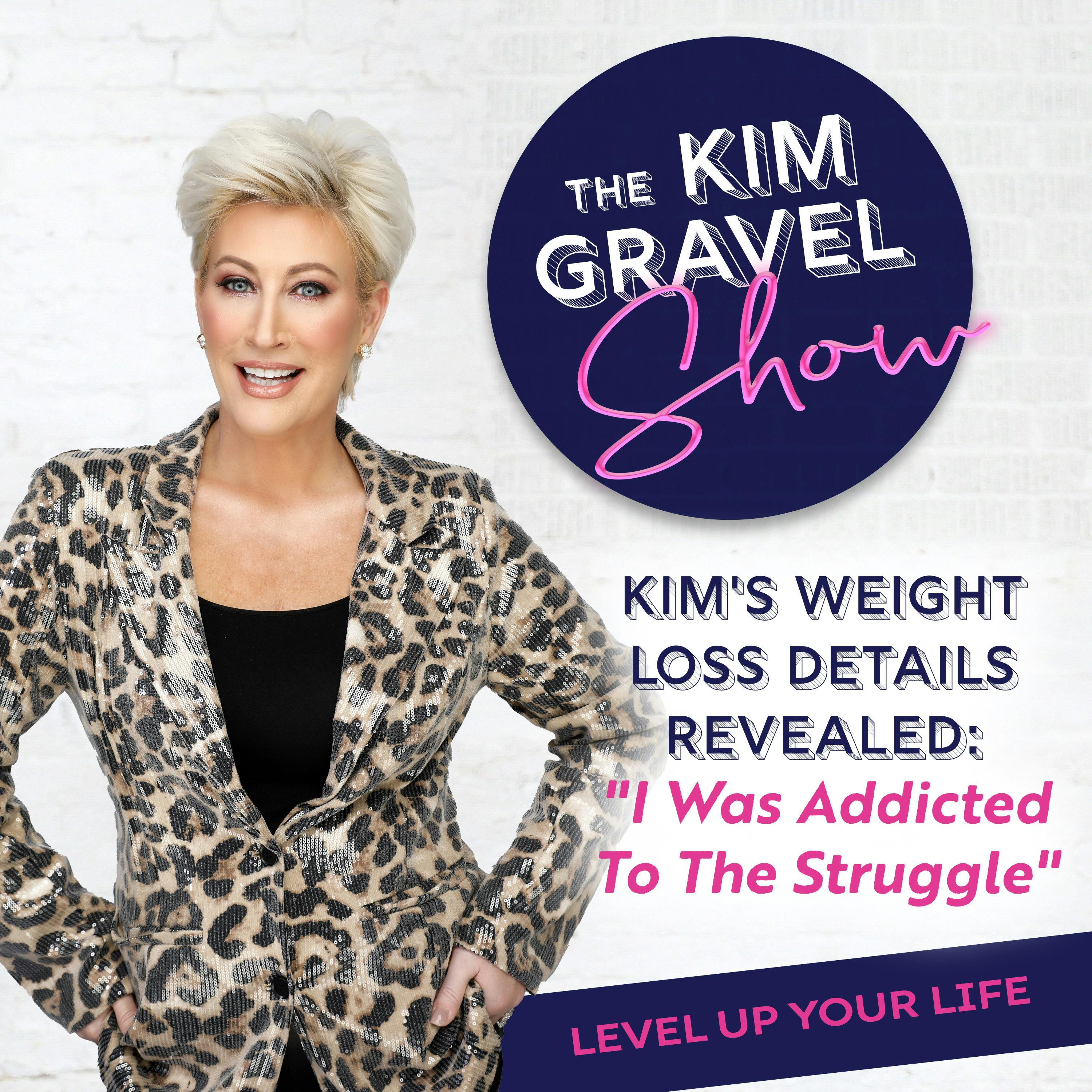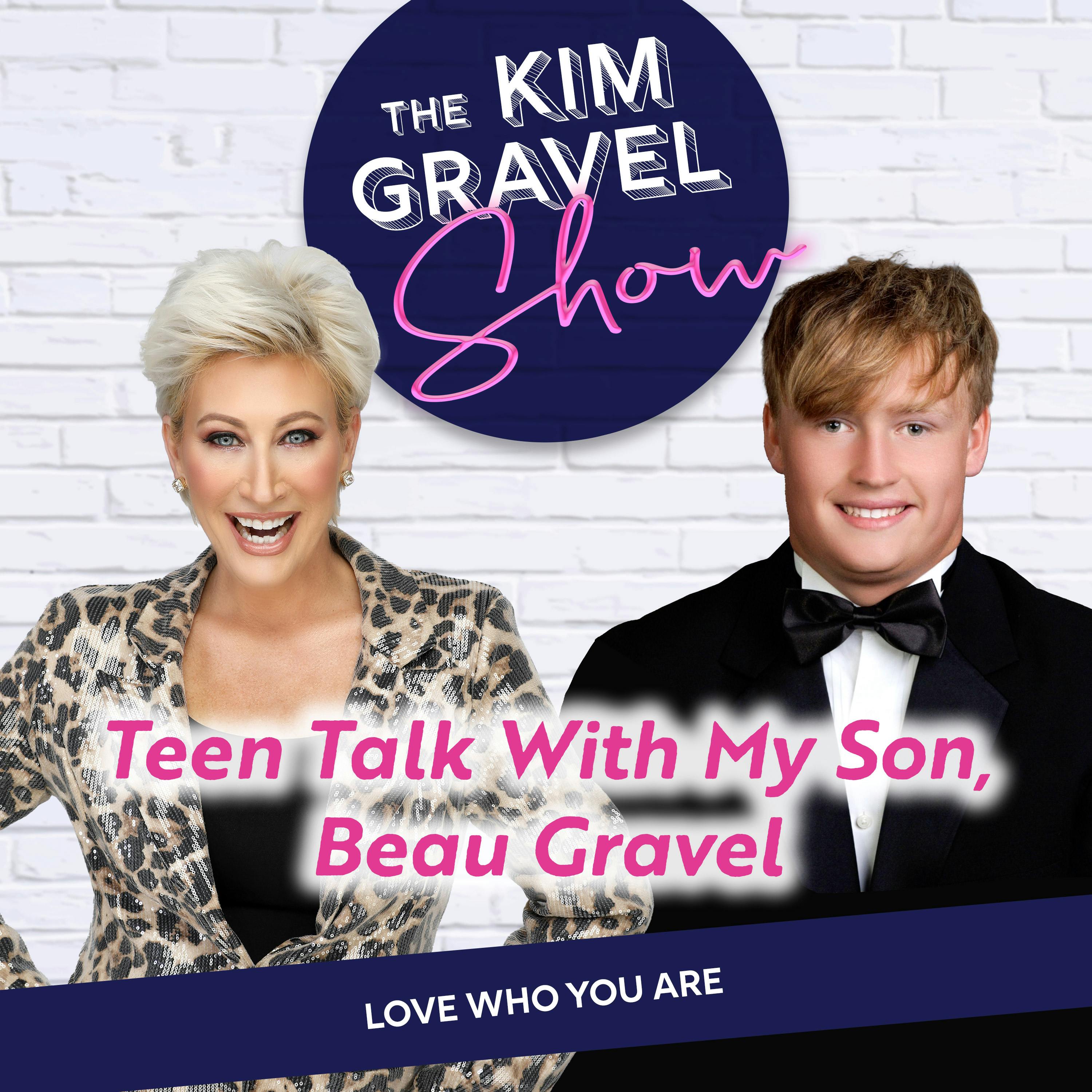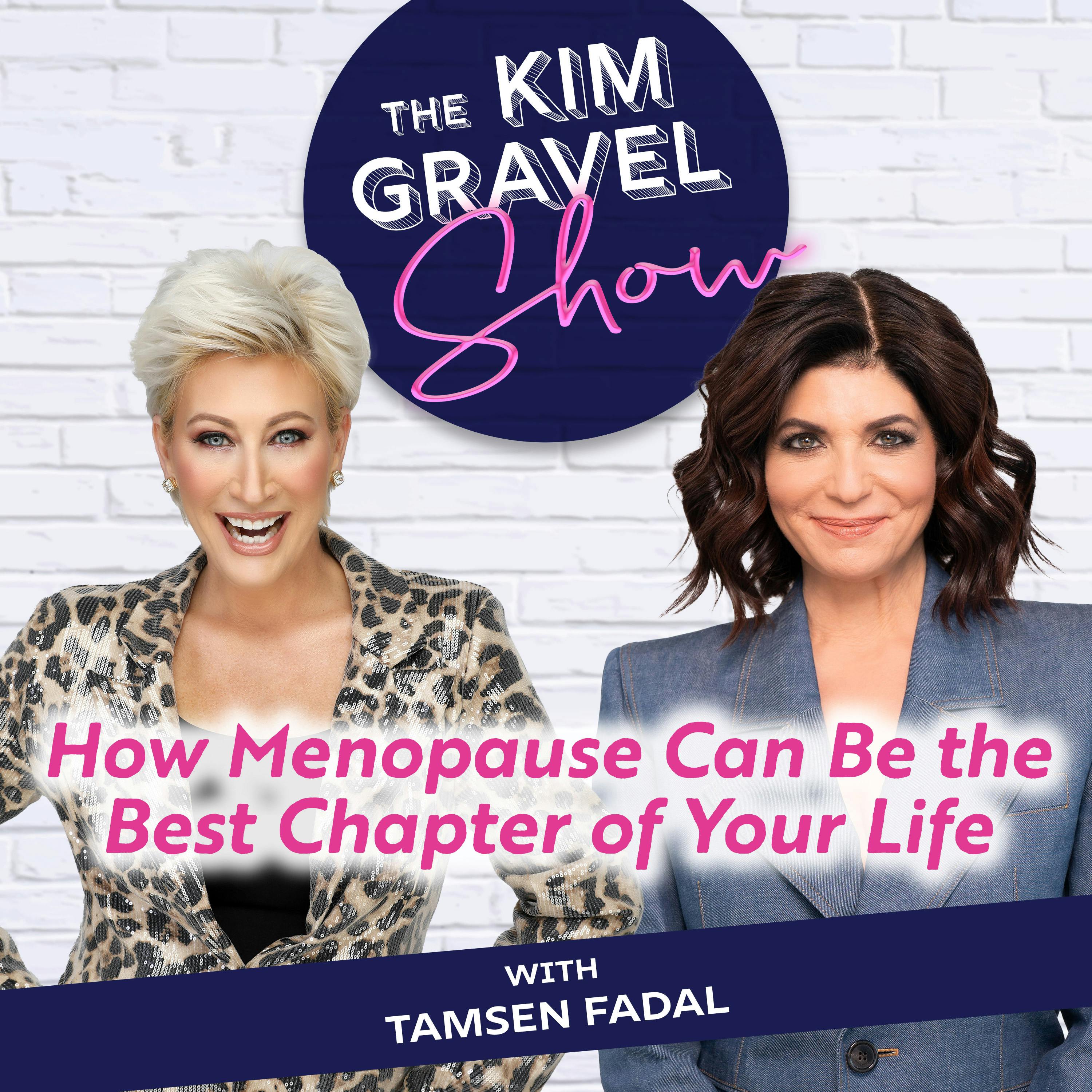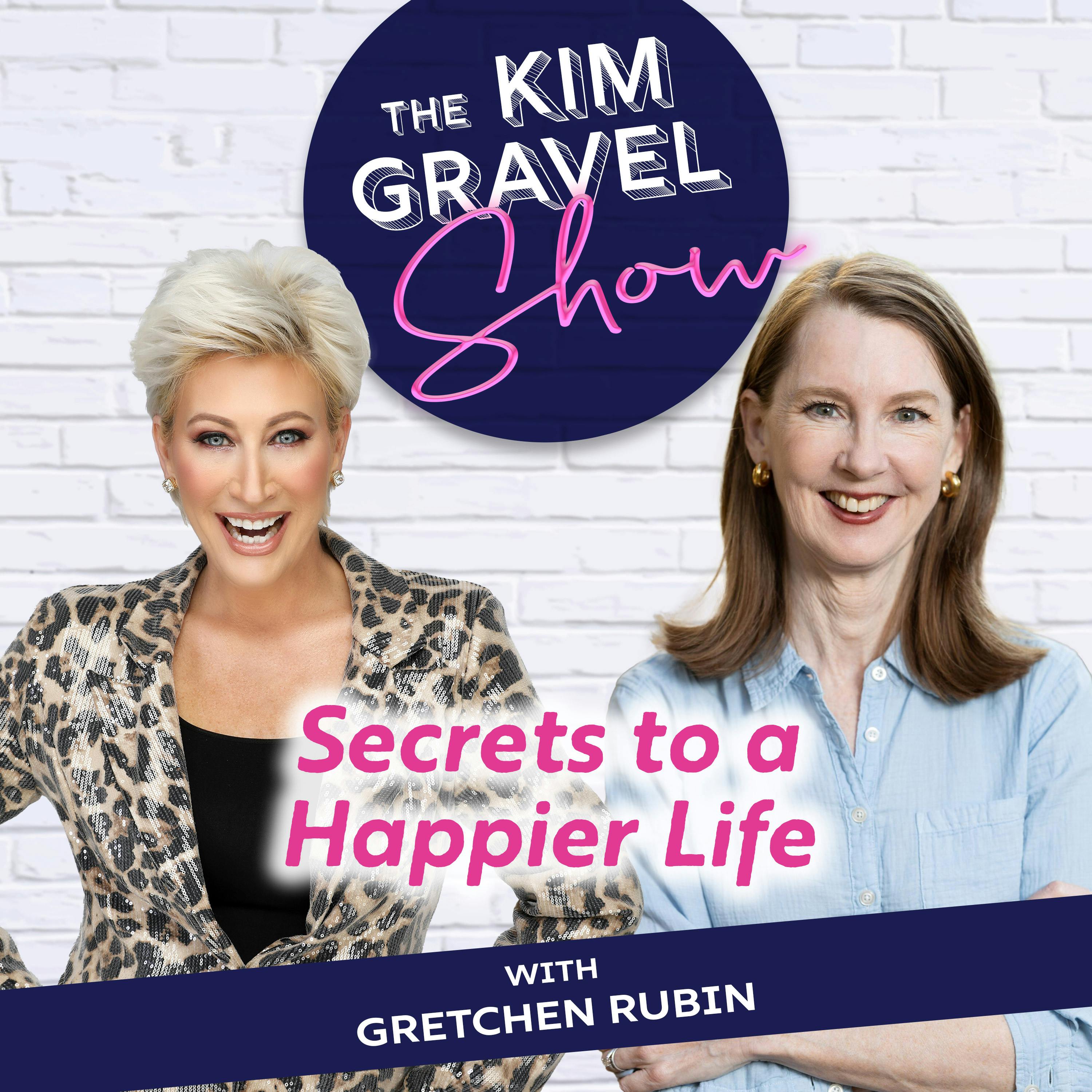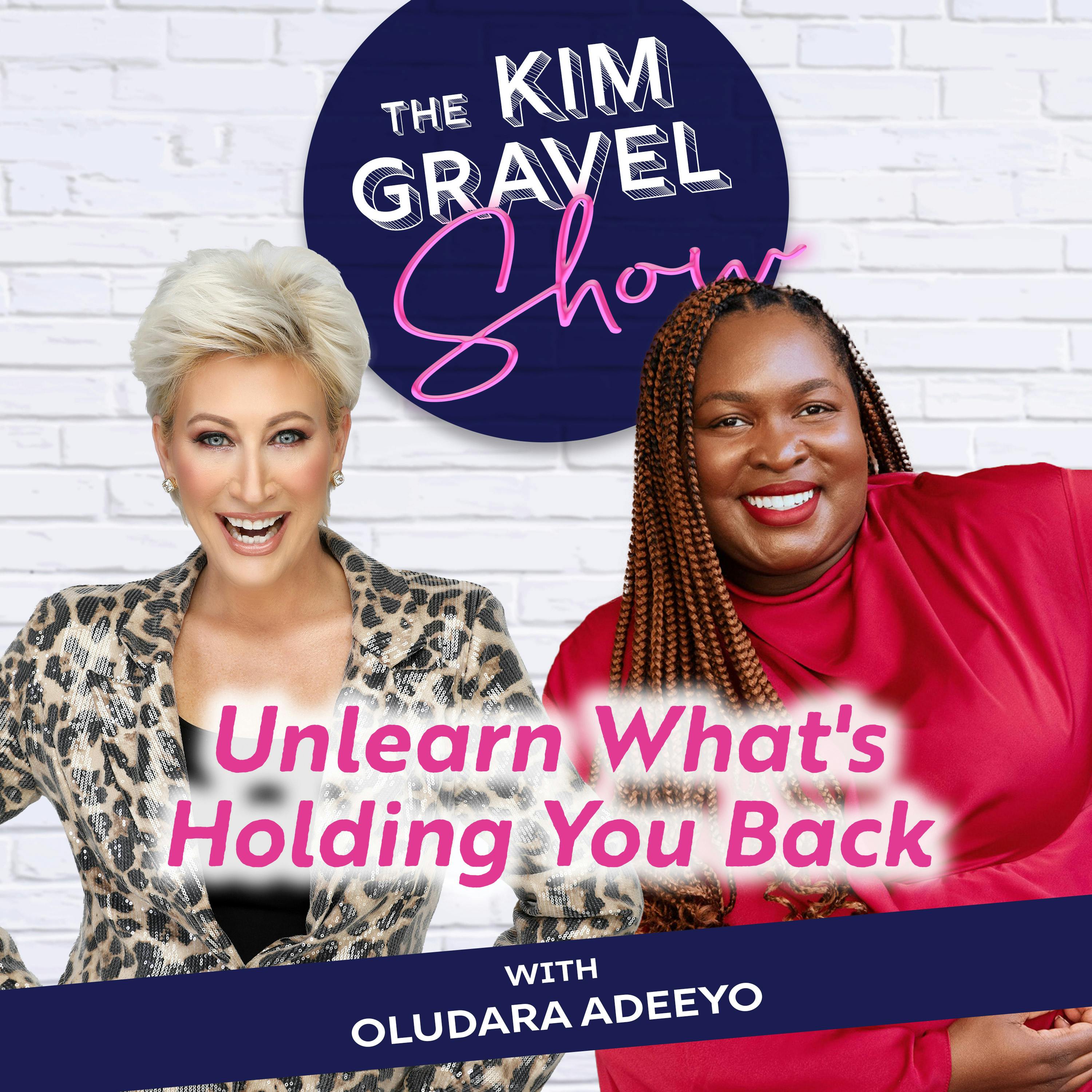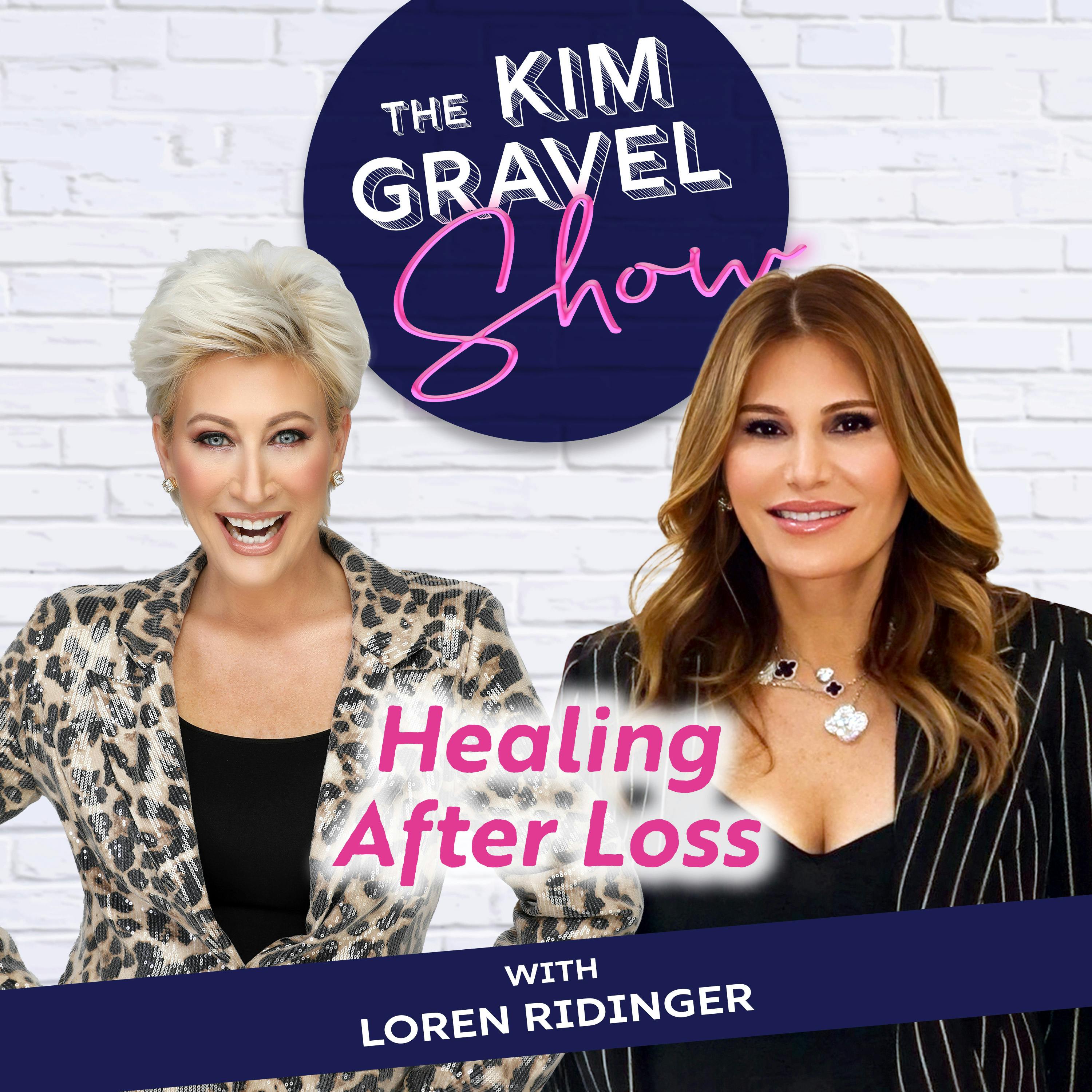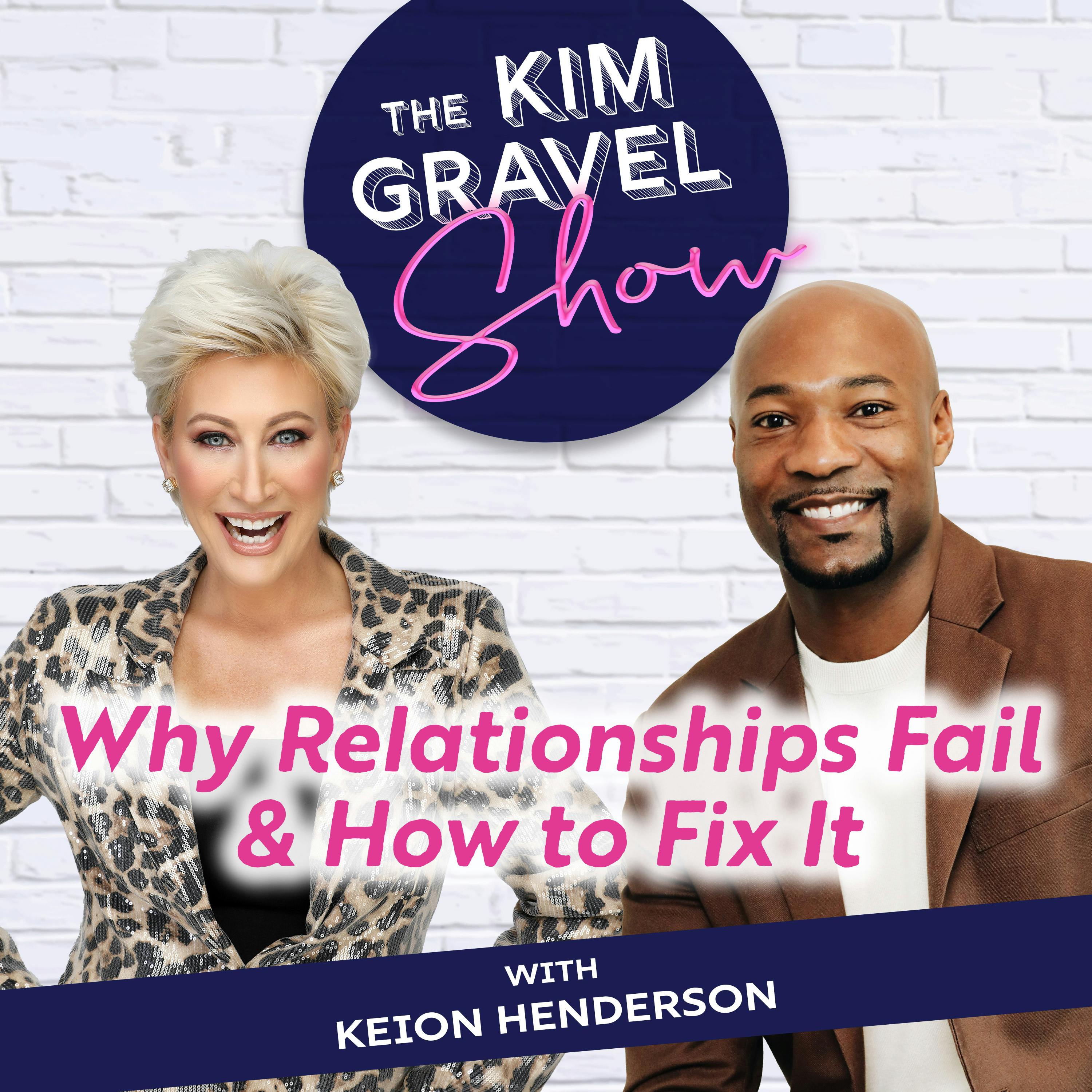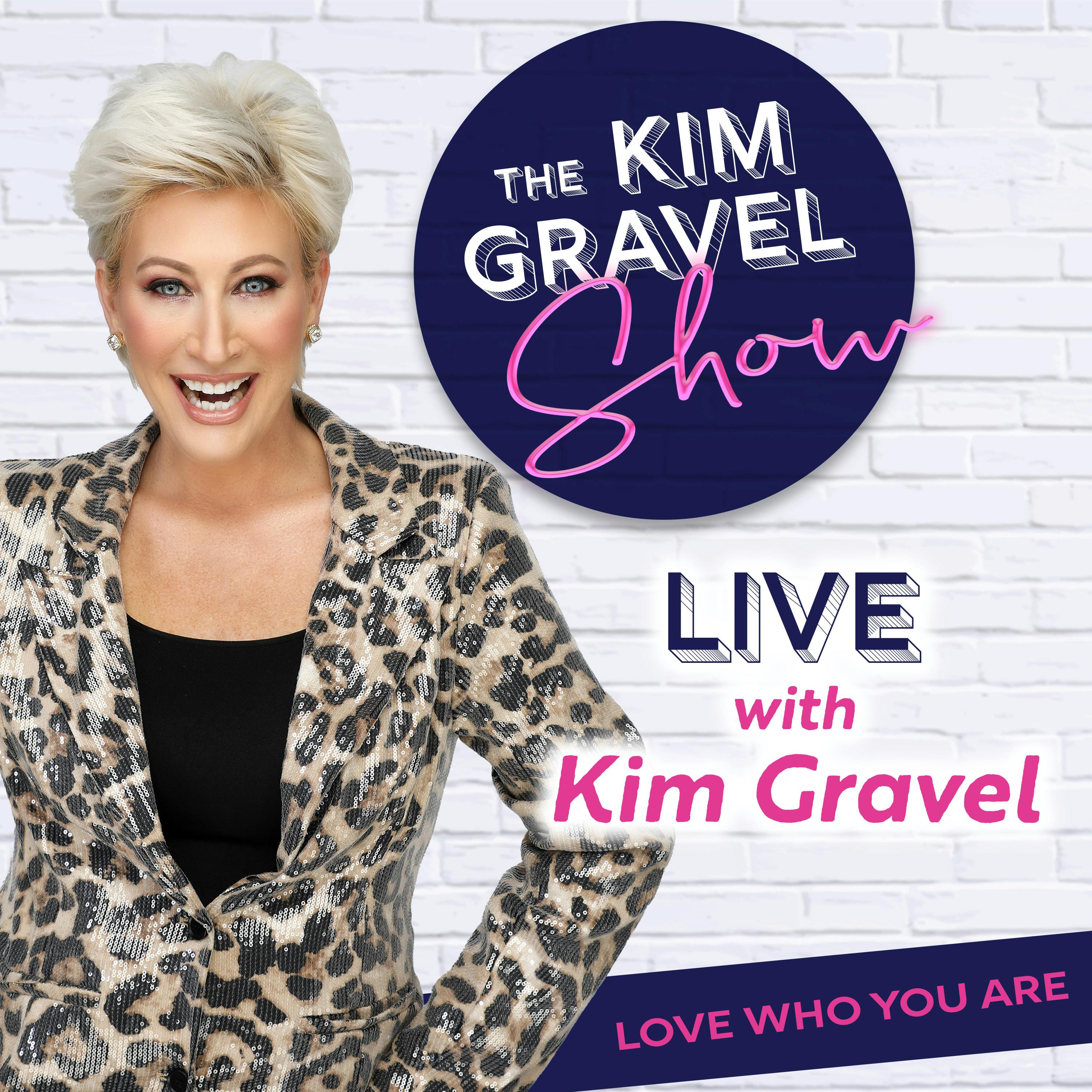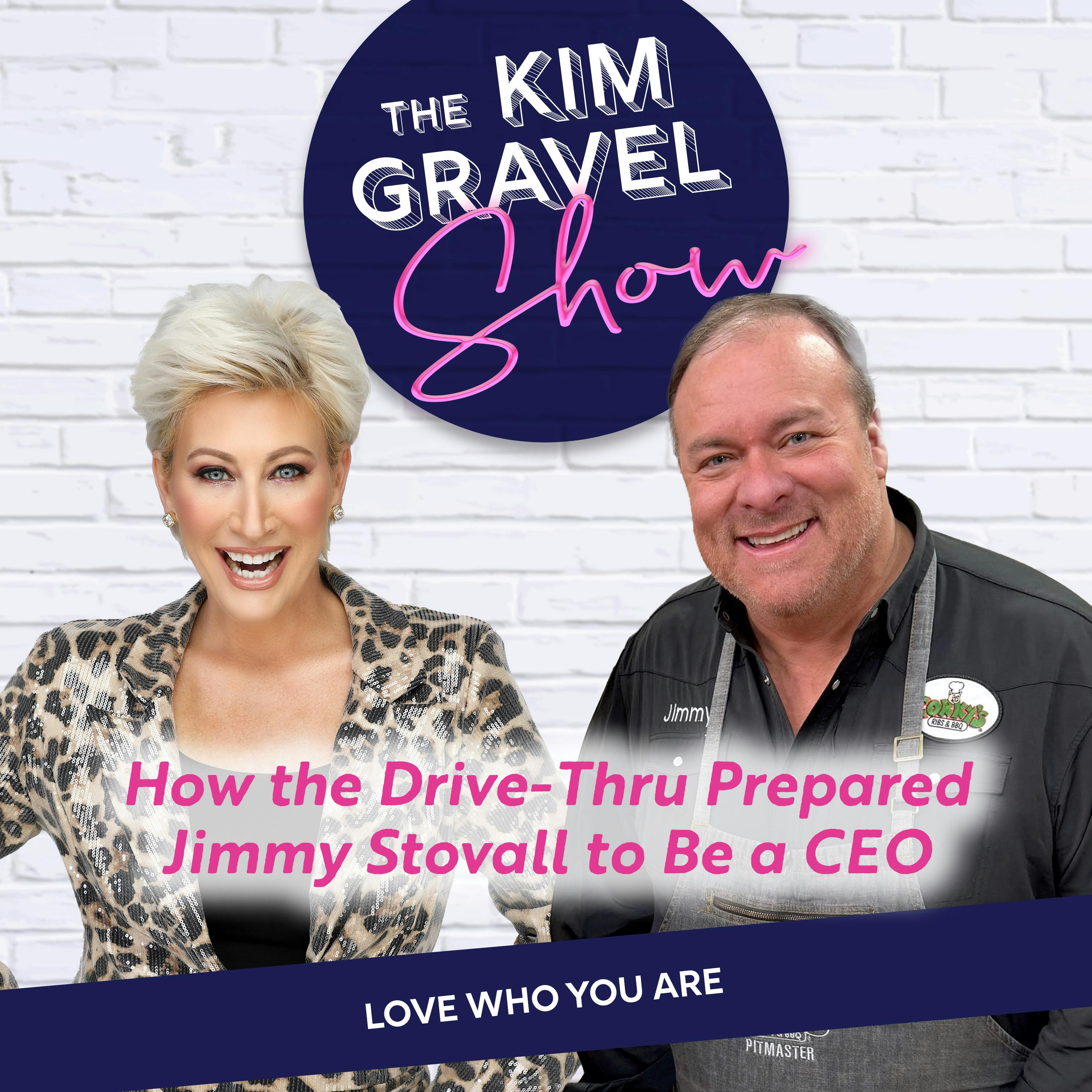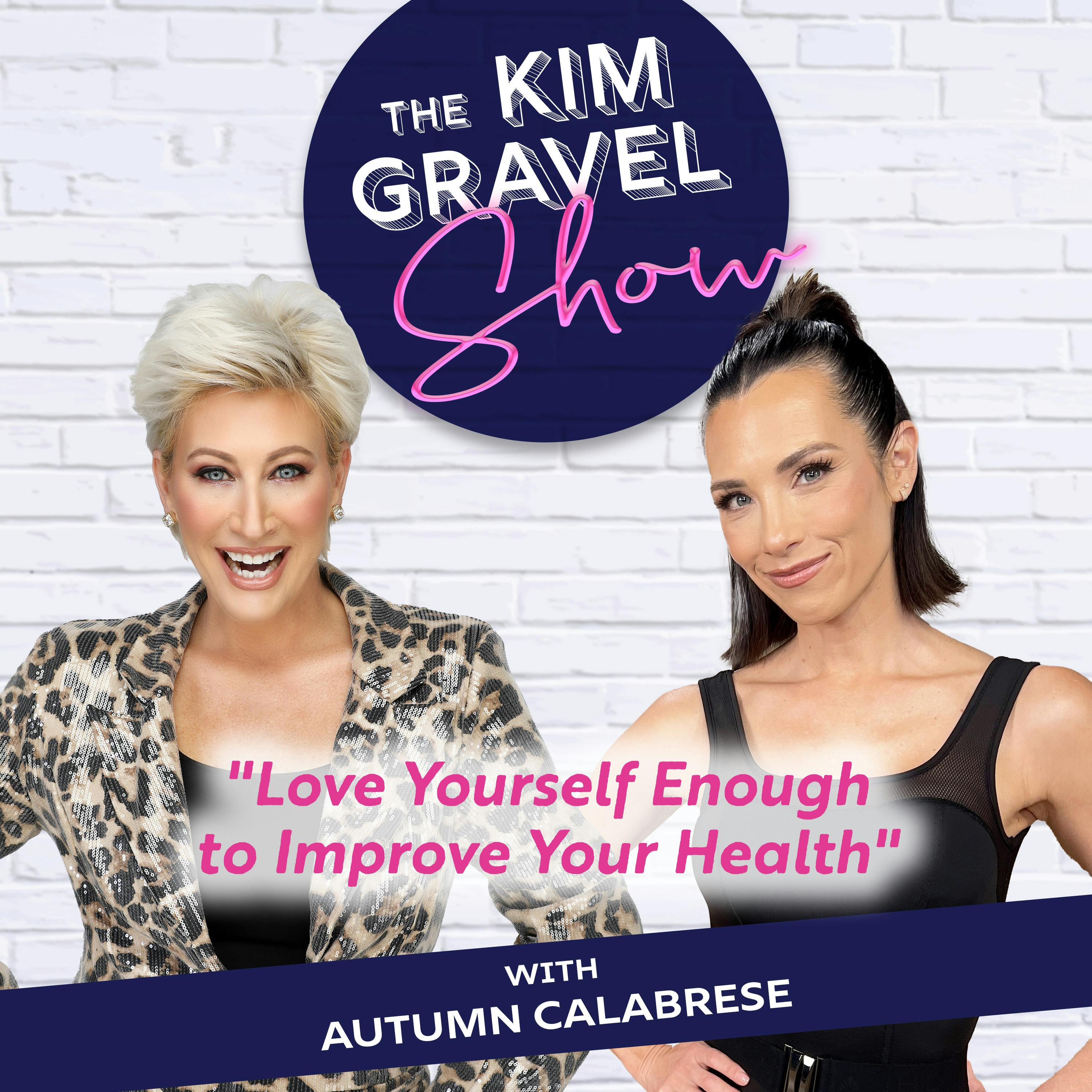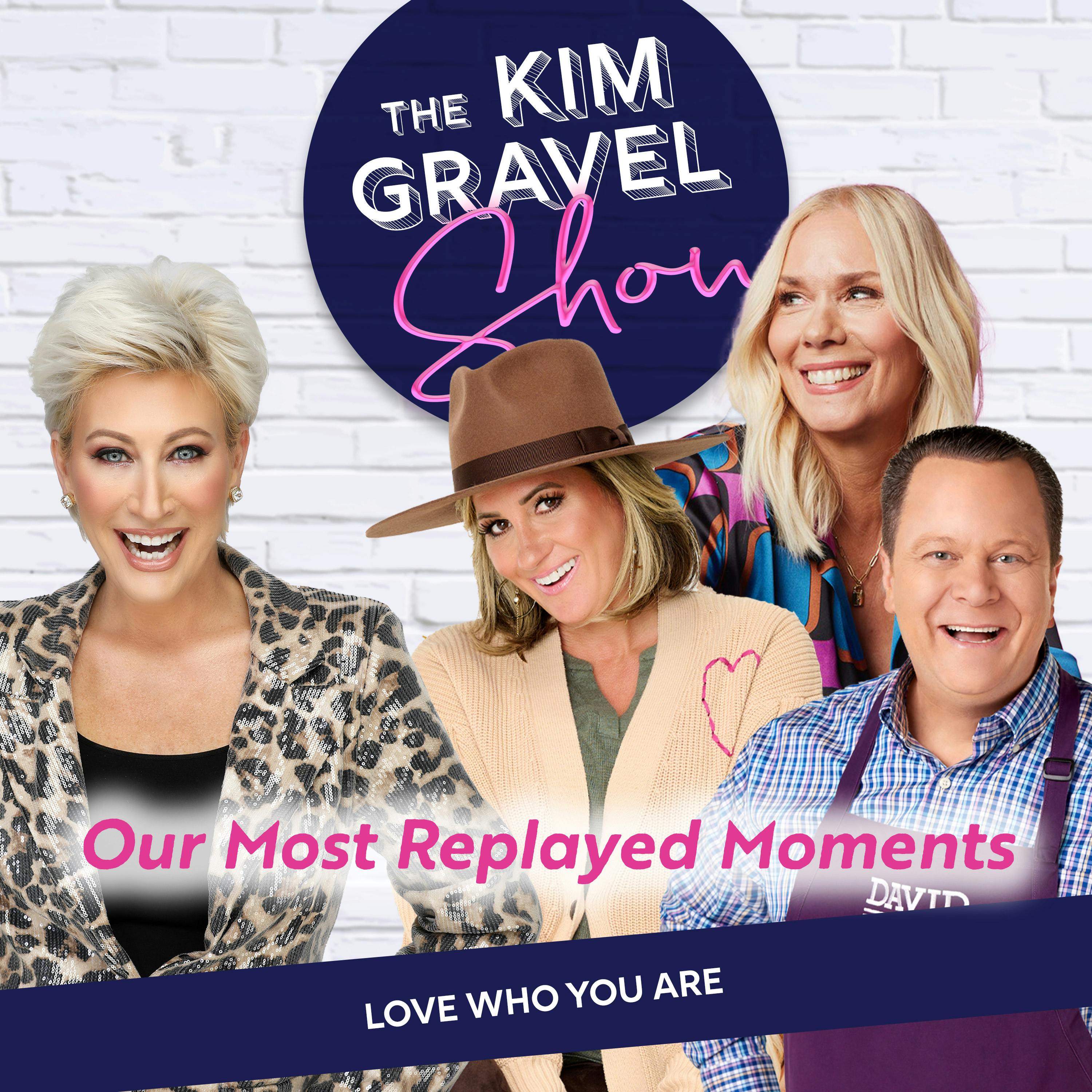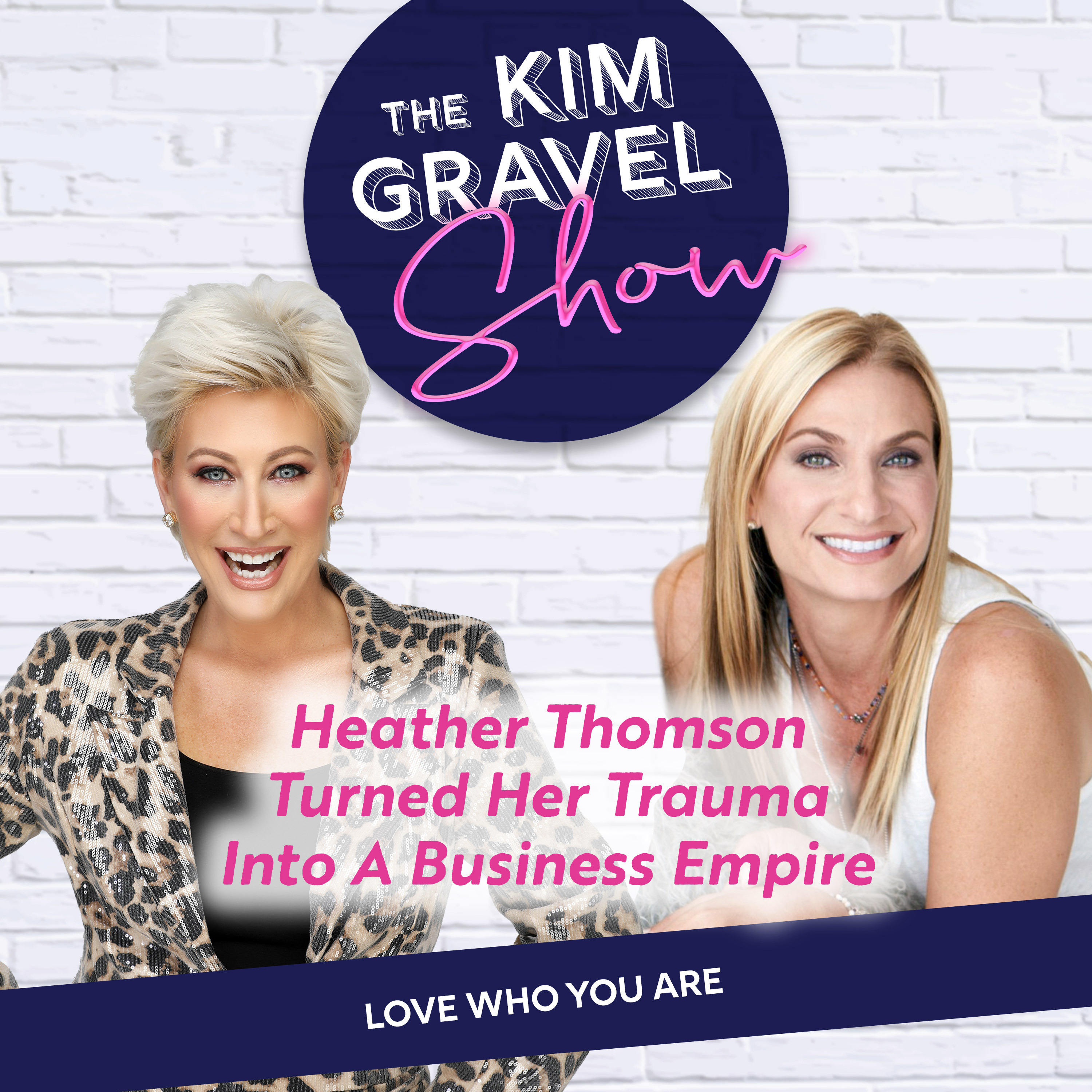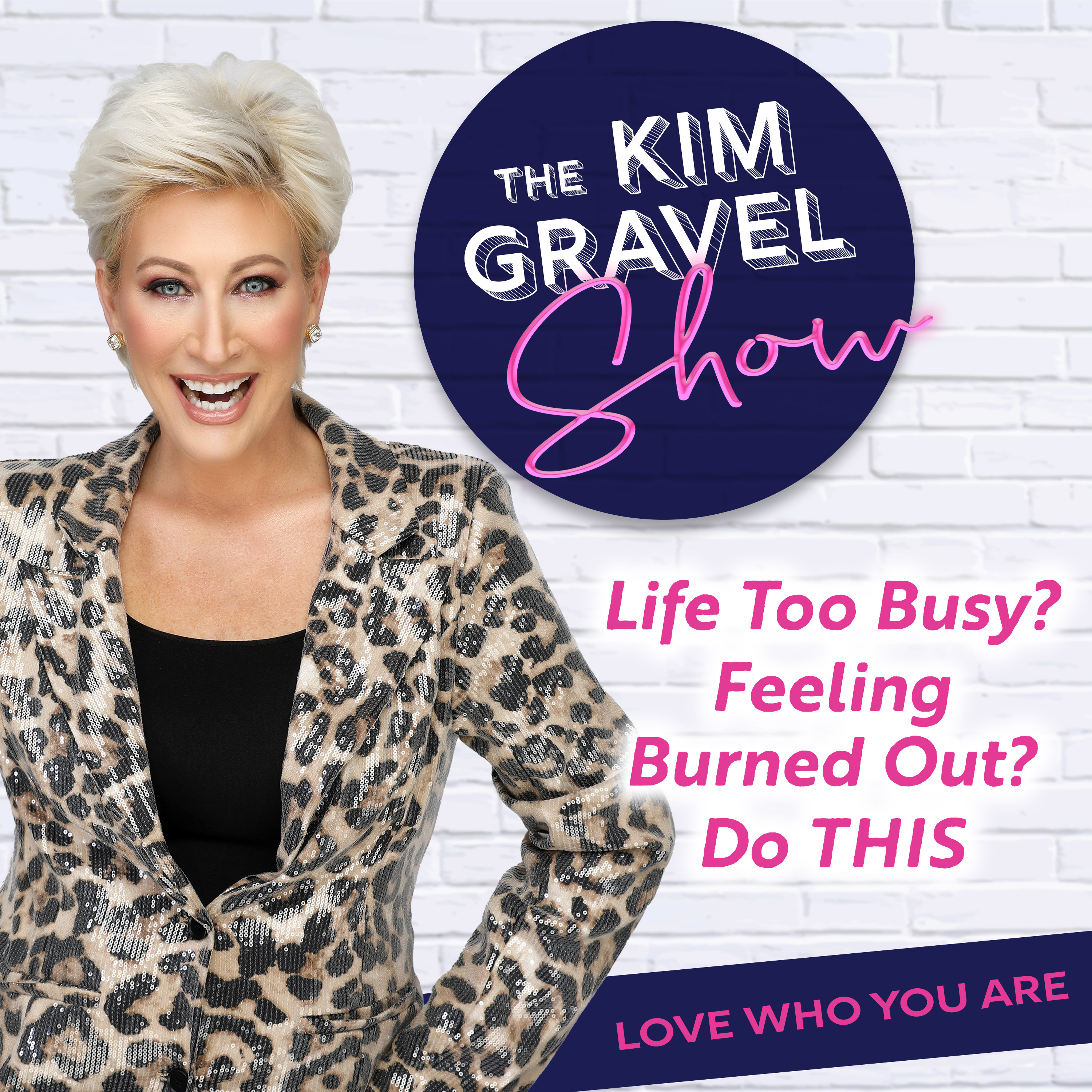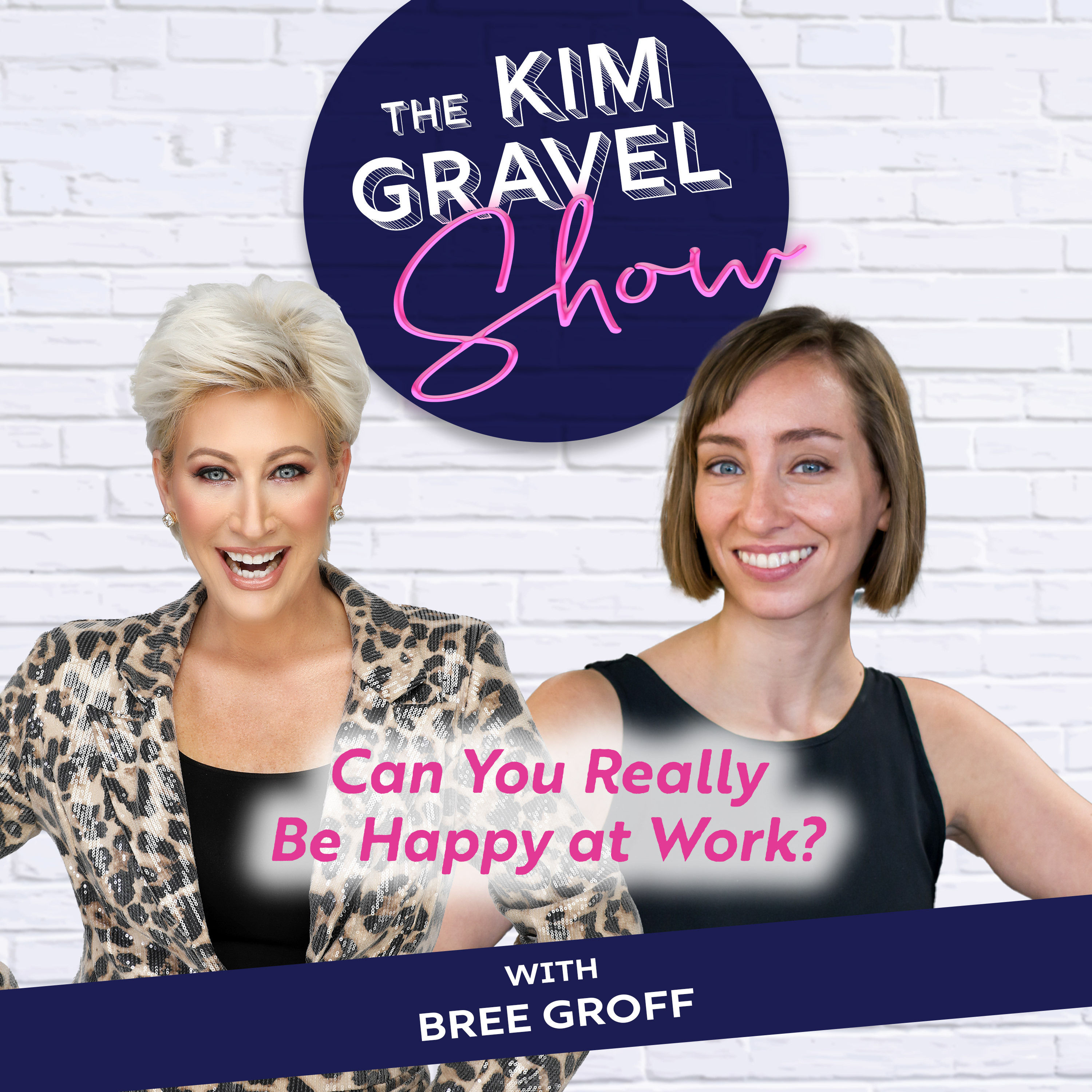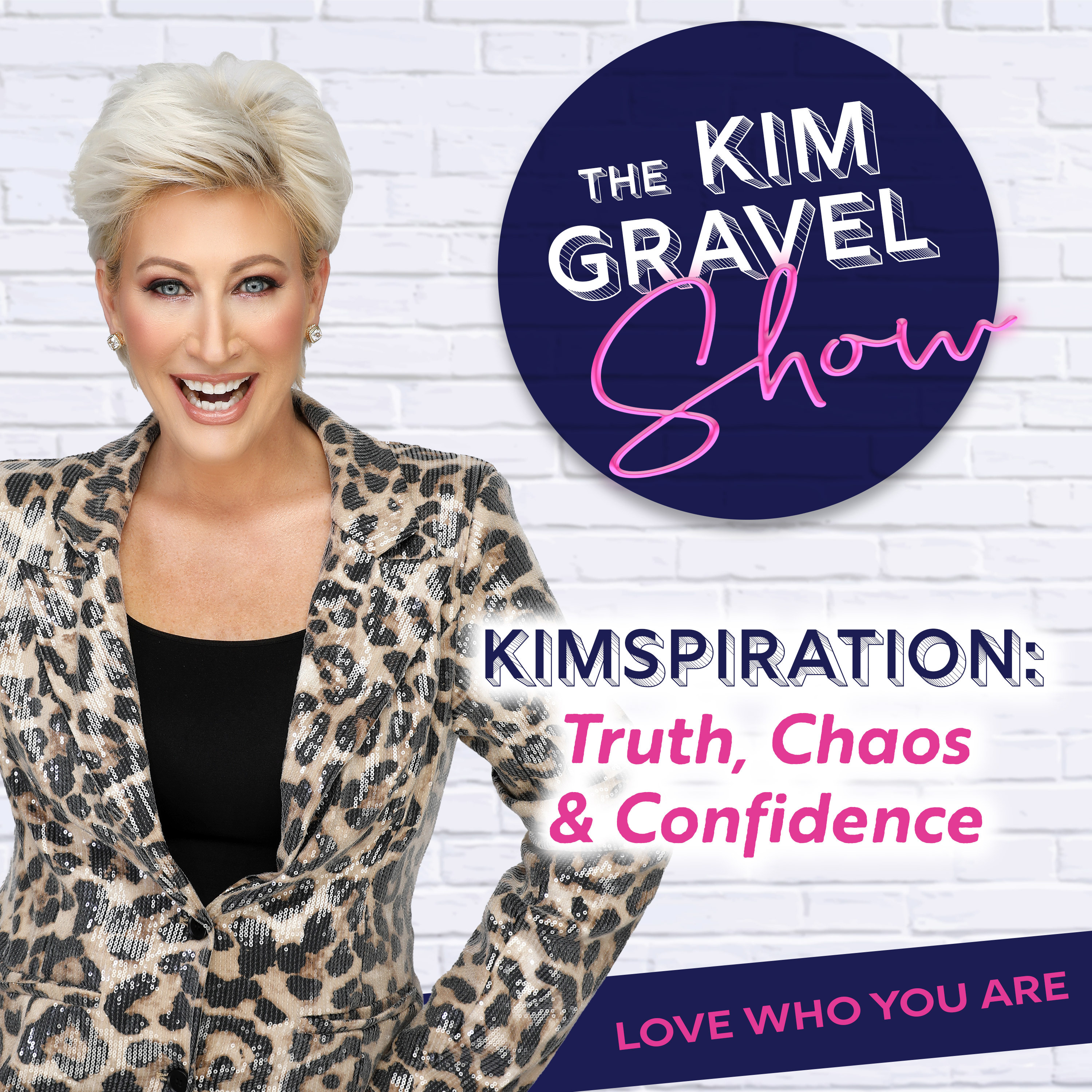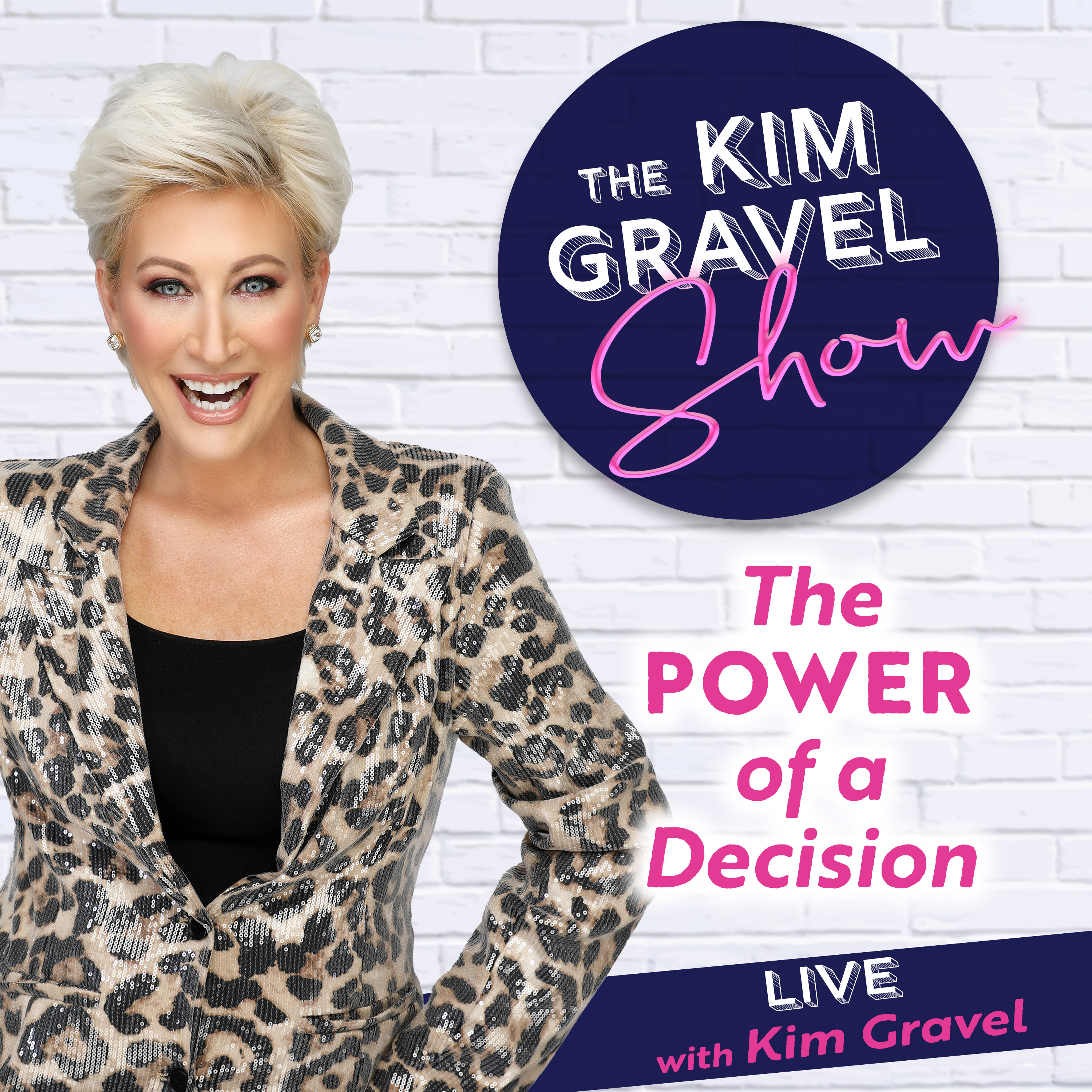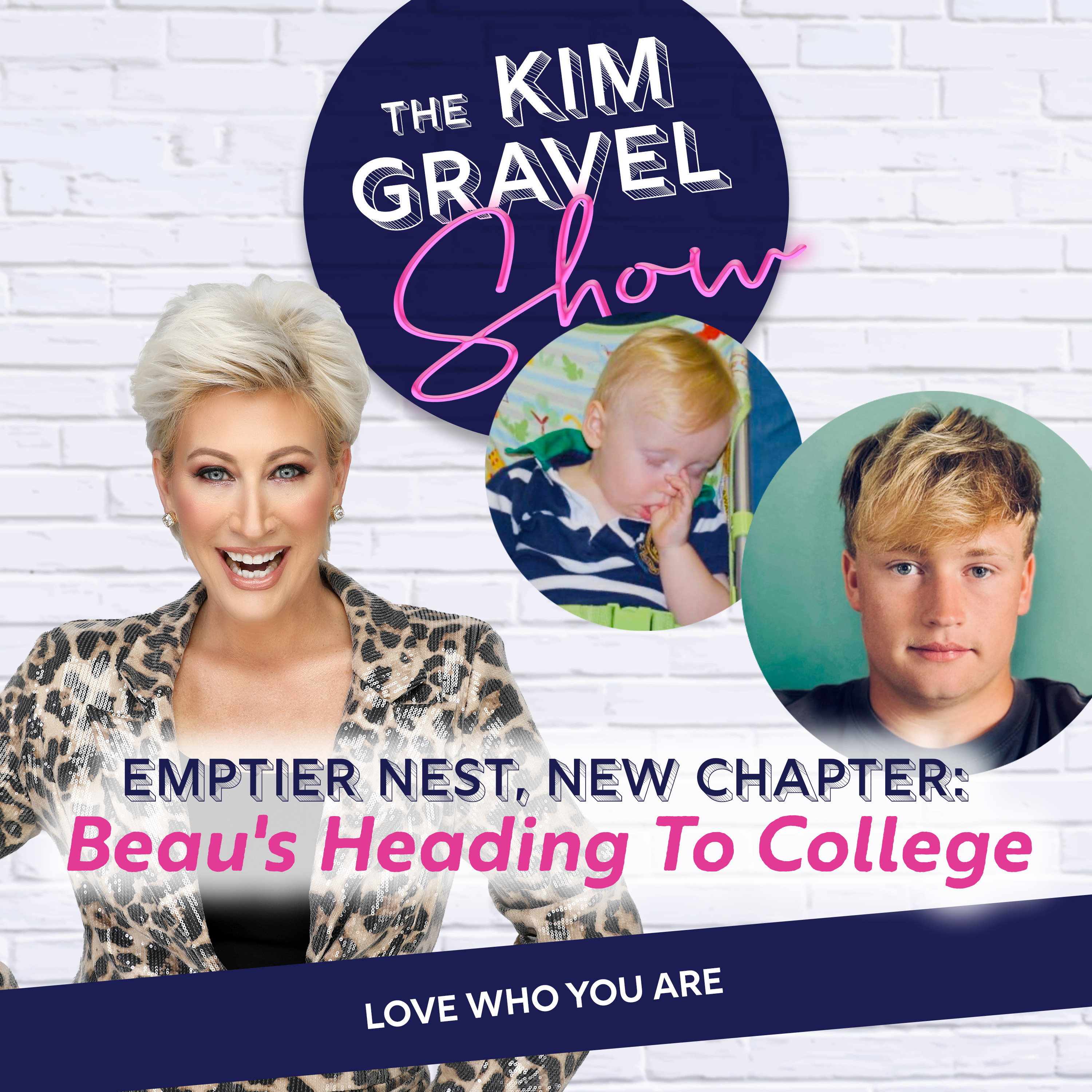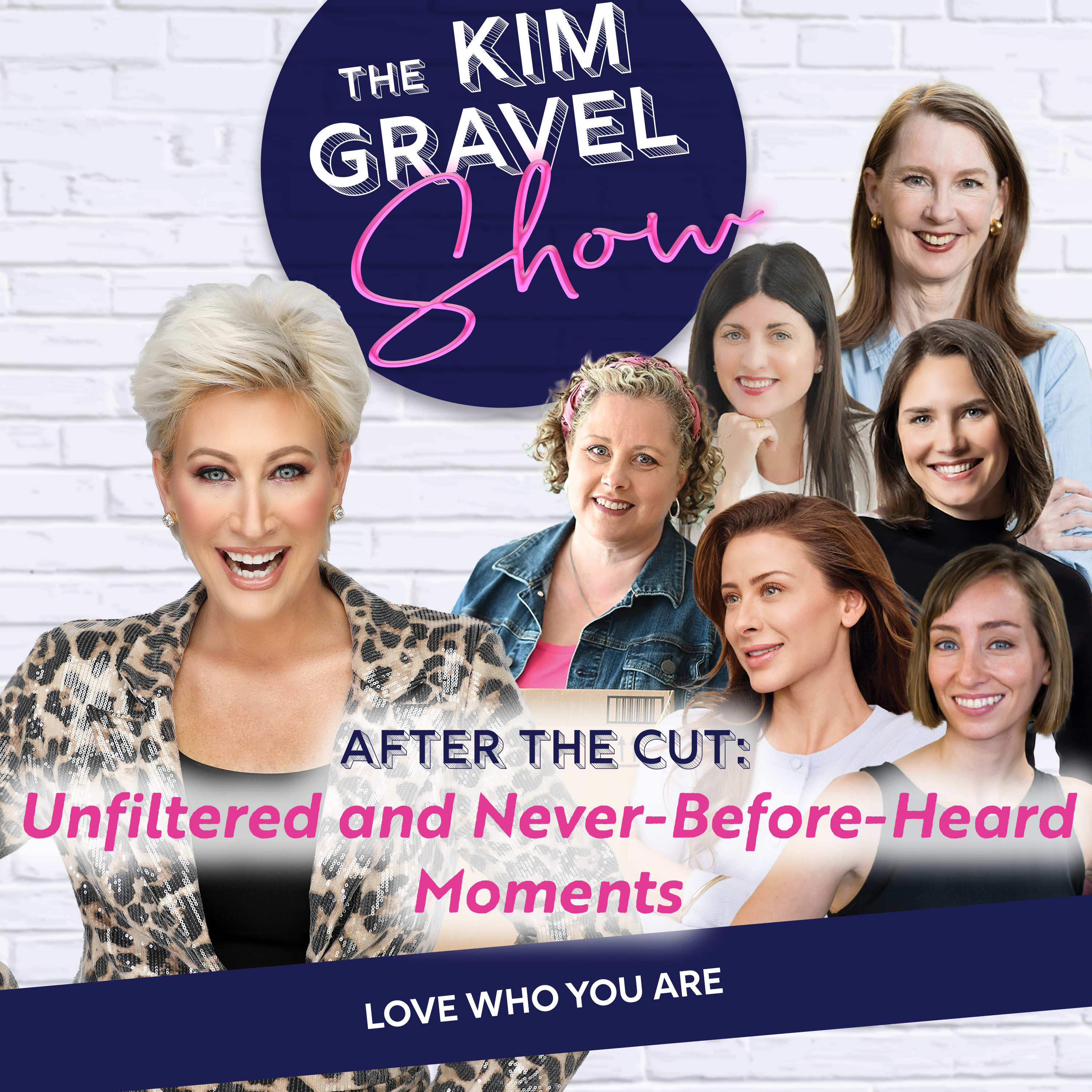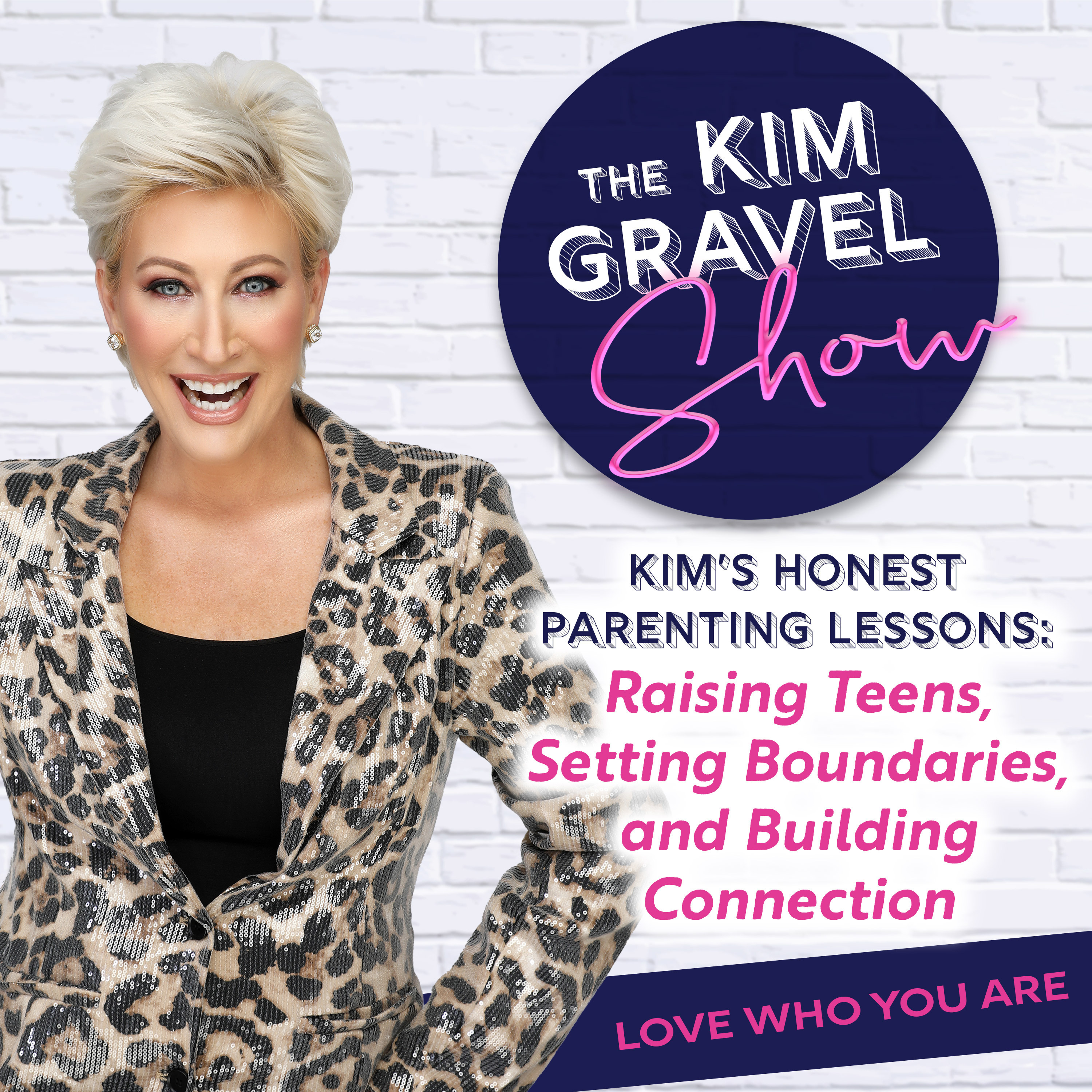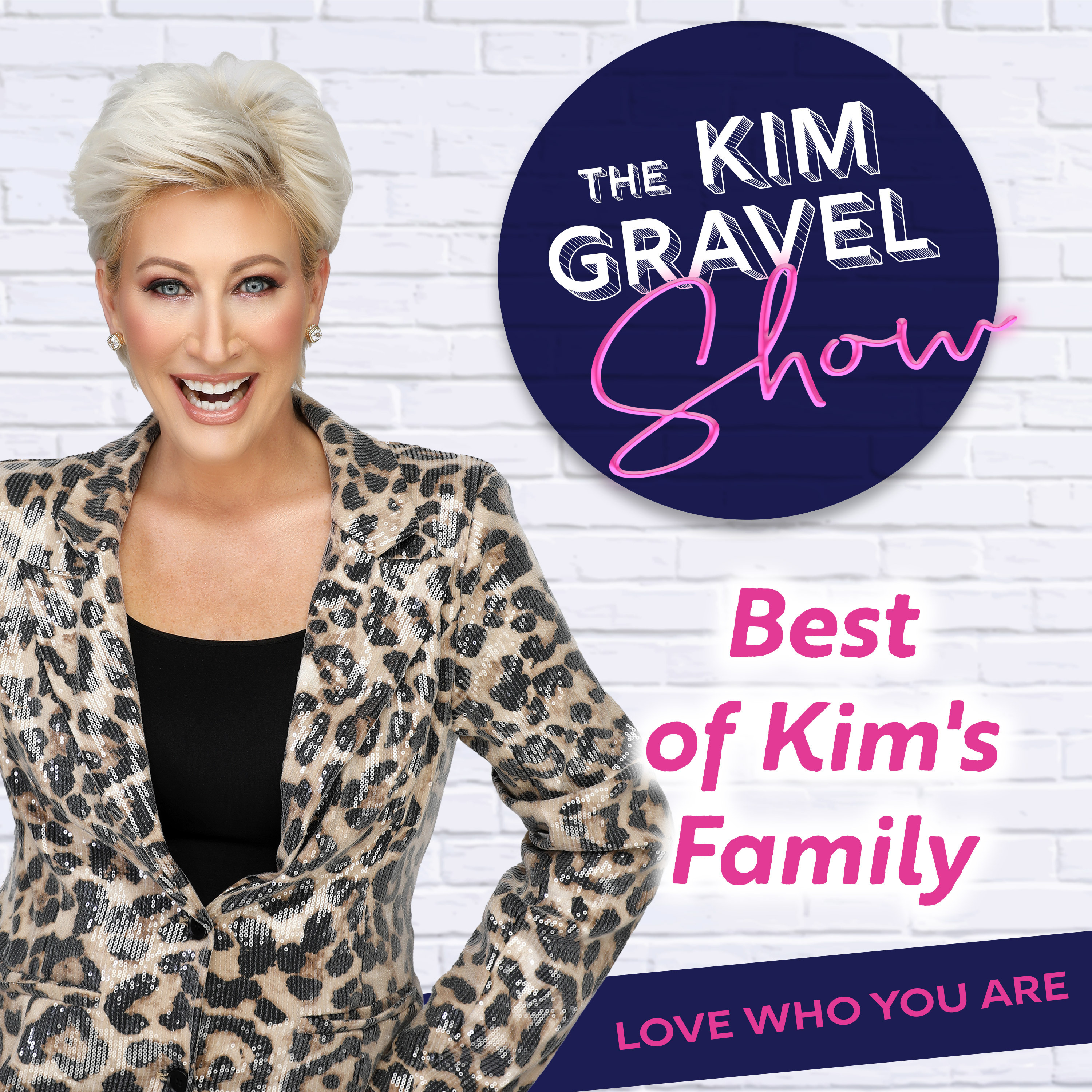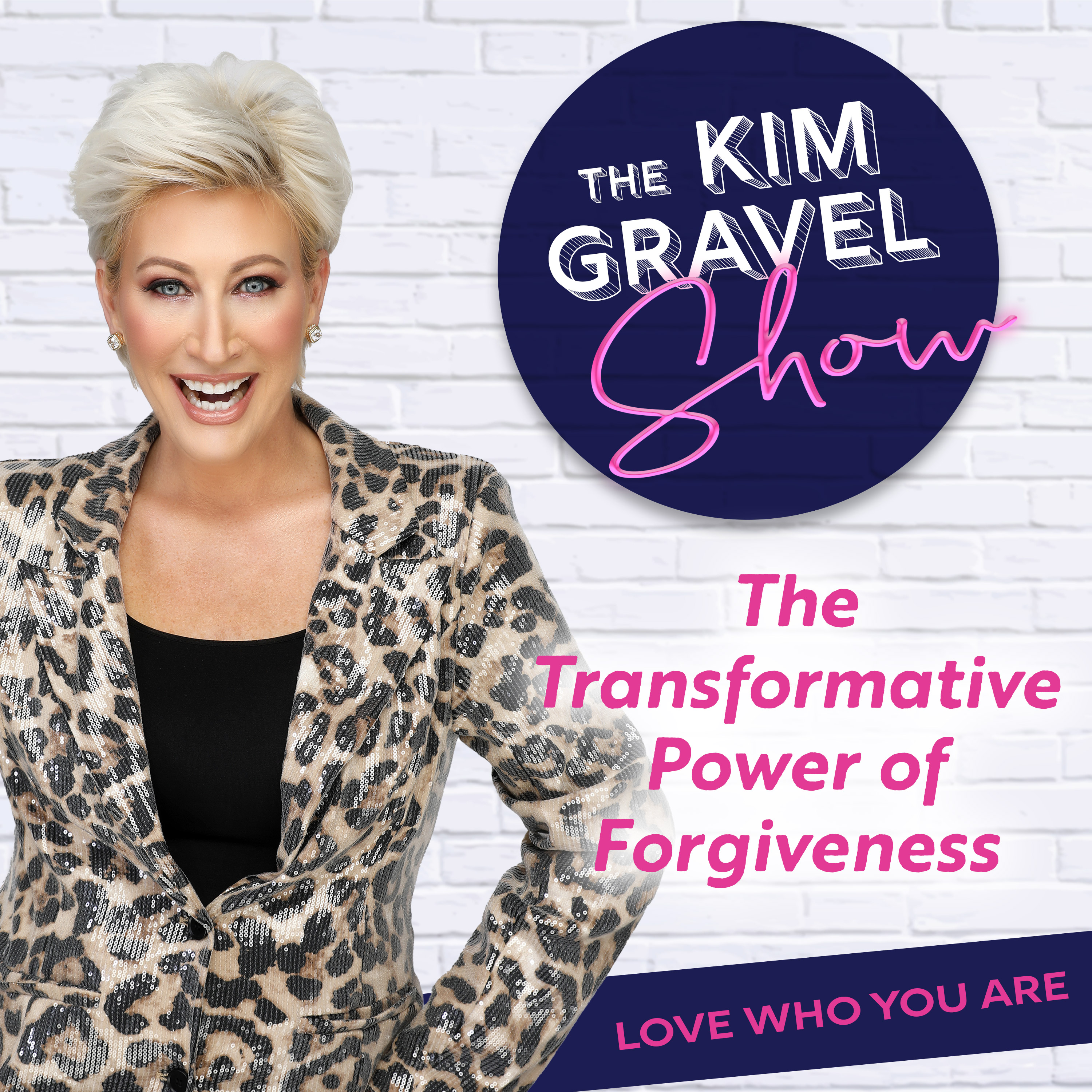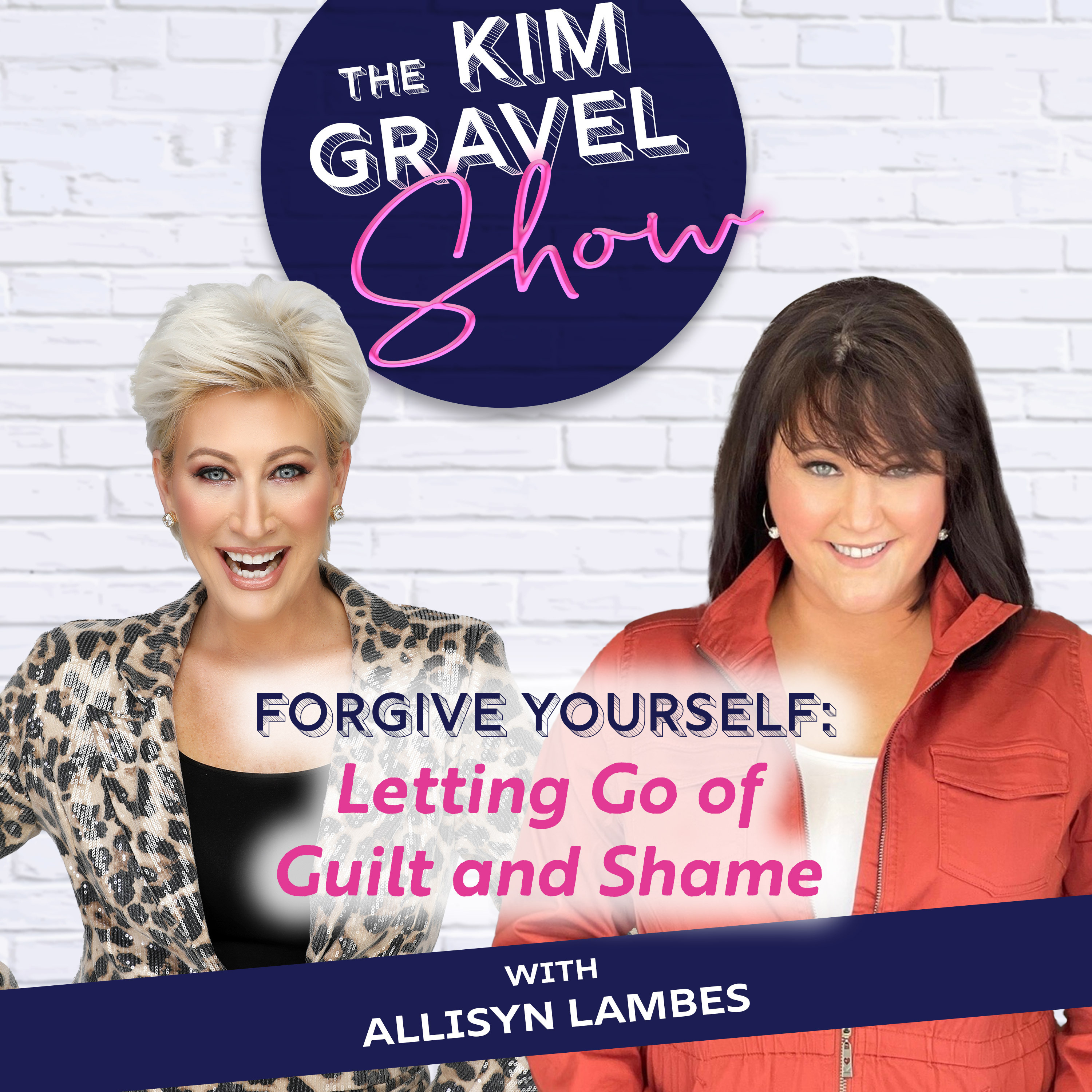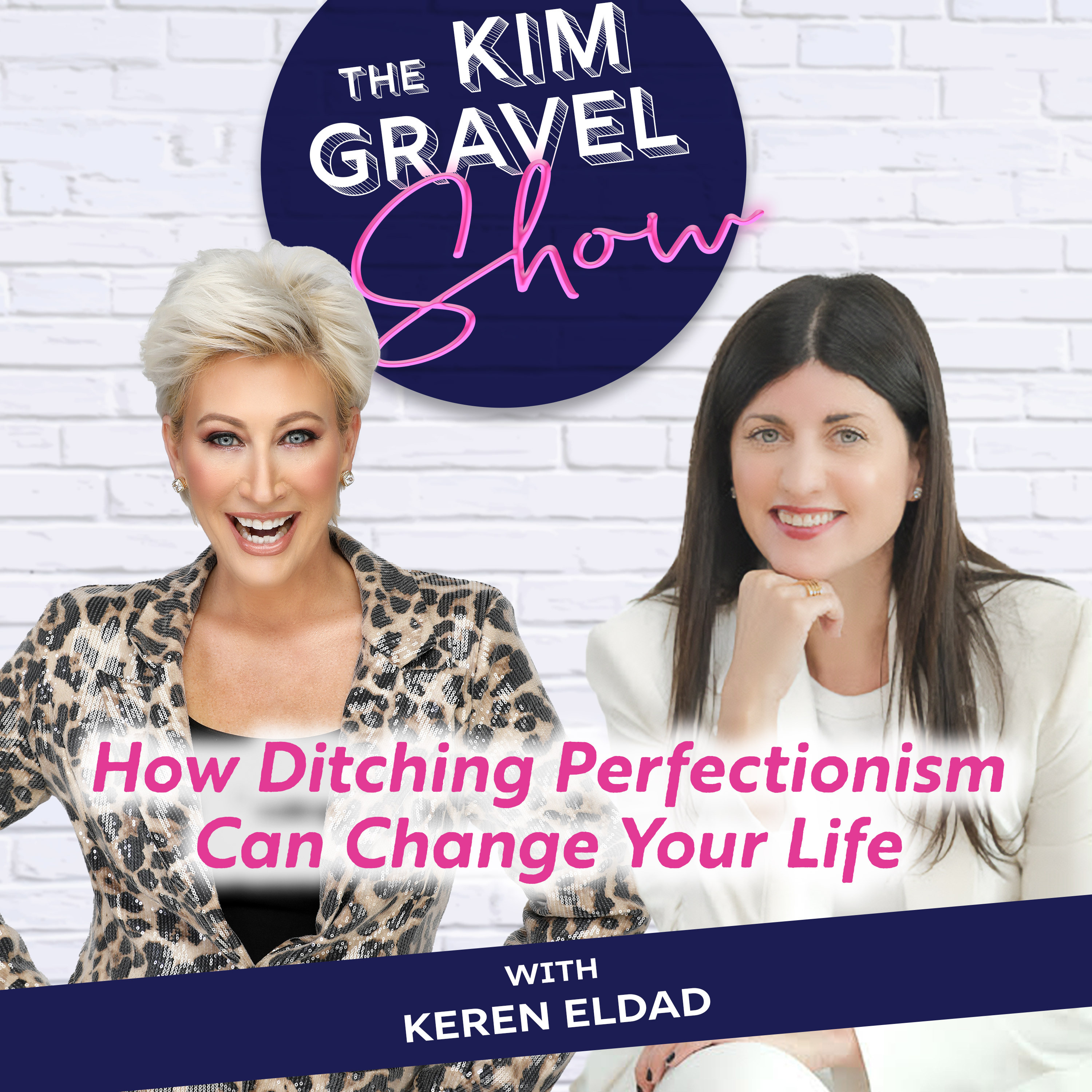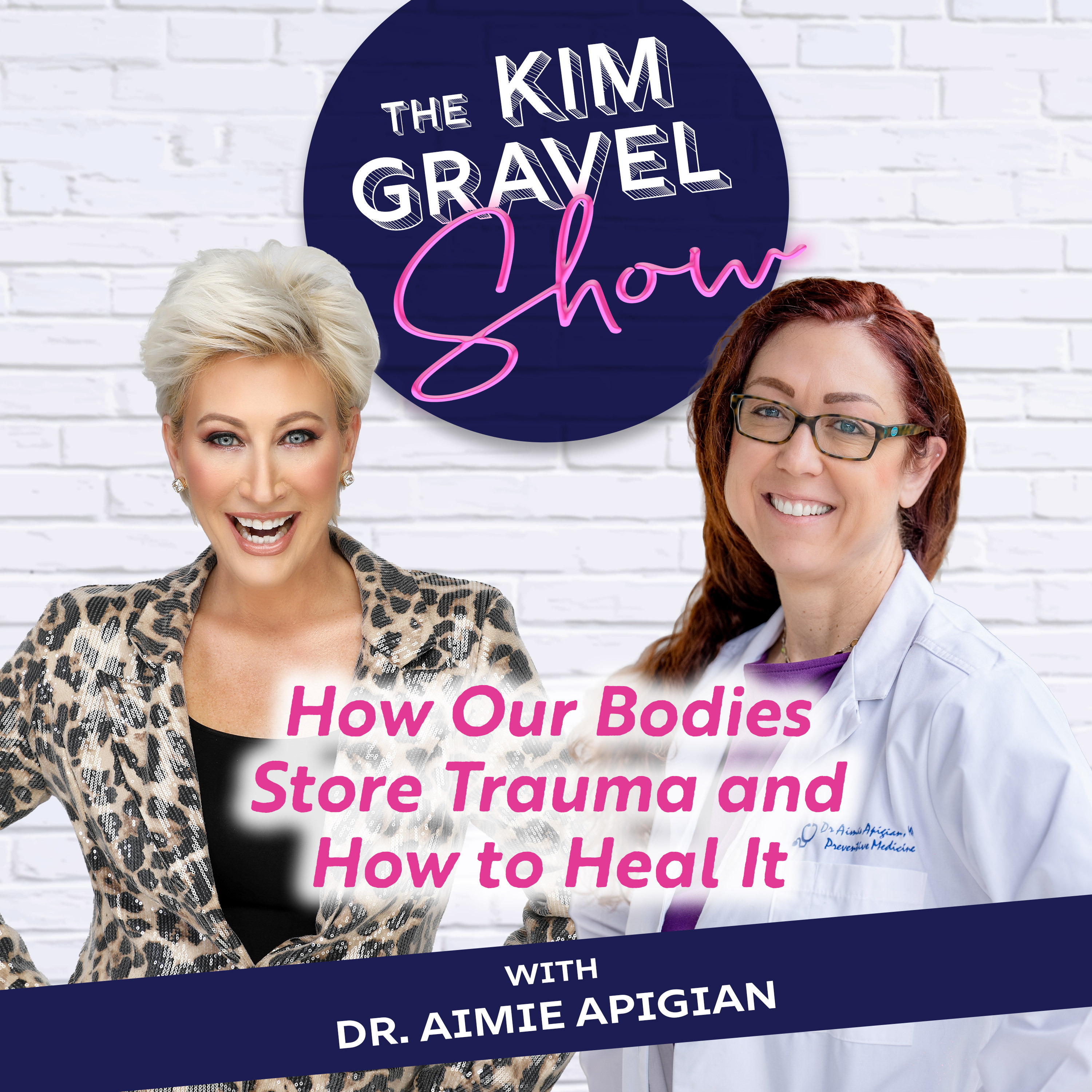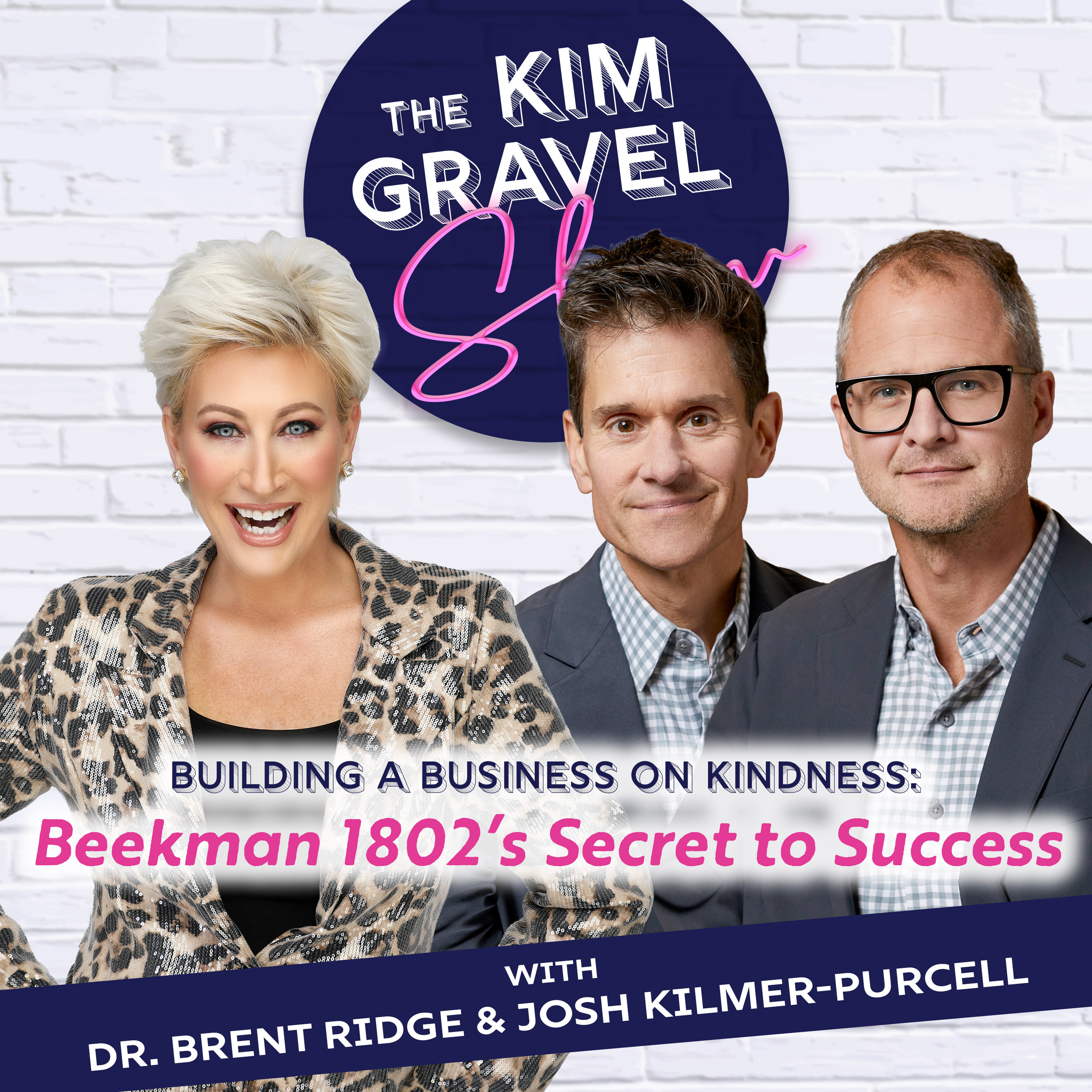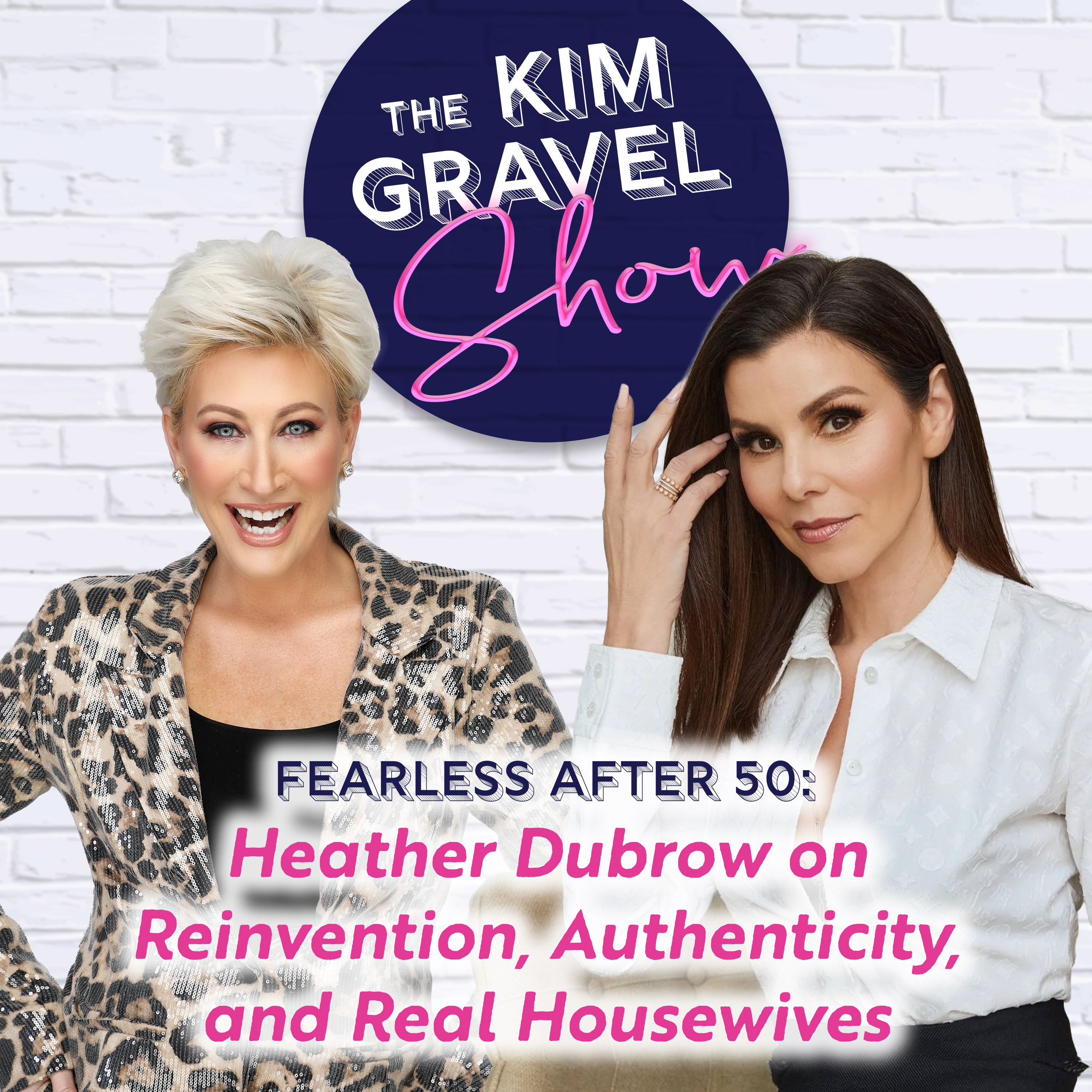5 Secrets For Living a High-Performance Life
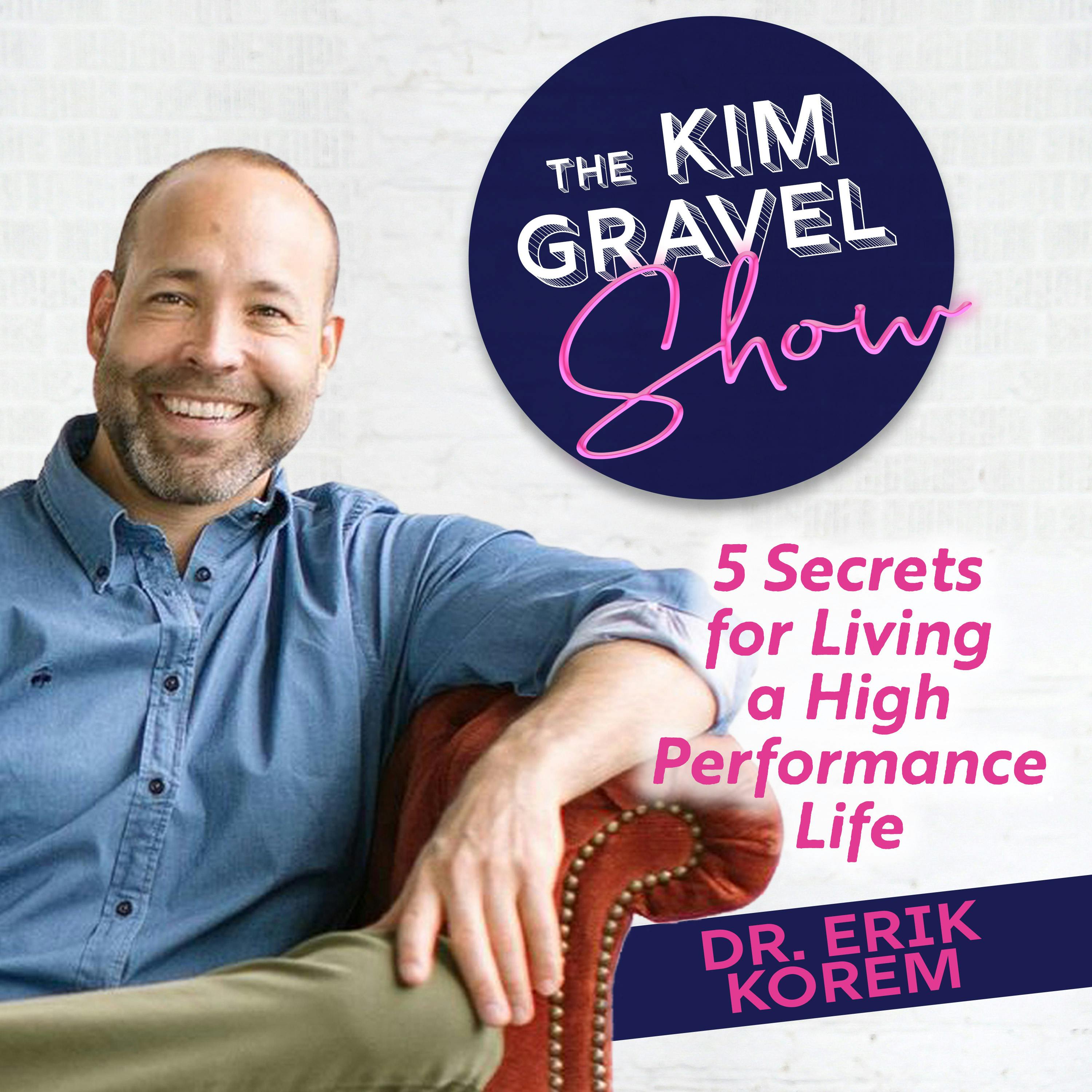
High-performance thought leader Dr. Erik Korem is on the show to tell me how he turns stress into his secret weapon.
Stress is our brain and body preparing us to do something difficult. If you change the way you think about stress you can use it to your advantage. This week, Dr. Erik Korem is here to discuss the five secrets to building adaptive capacity to make stress work for you and live a high-performance life. Grab your notebook because this episode is filled with advice you’re going to want to write down.
This week:
How to adapt to stress and use it to our advantage
How to build adaptive capacity
How we can improve our sleep quality and reduce hunger
How the benefits of community make you happier
How parents can avoid burnout
How Dr. Erik found his purpose
Rapid fire questions, including the unexpected amount of time that works best for naps
Here is my favorite quote from this week’s episode:
"Just because you're in it right now and it really is hard and it really sucks, doesn't mean that there's something excellent that can come out the other side." – Dr. Erik Korem
Dr. Erik Korem is a high-performance thought leader on a mission to help people live a healthy and fulfilled life. He introduced sports science and athlete tracking technologies to collegiate and professional football over a decade ago and has worked with the National Football League, Power-5 NCAA programs, gold-medal Olympians, Nike, and the United States Department of Defense. Erik is an expert in sleep and stress resilience, and he is the Founder and CEO of AIM7 and the host of The BluePrint podcast.
The Kim Gravel Show is a weekly podcast for women where you stop doubting and start believing in yourself. On each episode Kim tackles the topics that women care about in a way that will make you laugh, make you think, and help you see your life in a new, more positive way.
Do you want real confidence that doesn’t waiver in the face of circumstances?
Do you want to stop making excuses and value yourself more than ever?
Then you’ve come to the right place.
New episodes of The Kim Gravel Show drop every Thursday.
Get tickets to my LIVE book launch event here
Pre-Order my new book: Collecting Confidence
Check out my channel on QVC+ for full video episodes
Connect with Dr. Erik Korem:
The BluePrint with Dr. Erik Korem
Connect with Kim:
Learn more about your ad choices. Visit megaphone.fm/adchoices
*This transcript was auto-generated*
Kim Gravel: Coming up on the Kim Gravel show,
Dr. Eric Korem: you don't have to go kill yourself every morning in the gym. Some days winning is five minutes alone, being quiet, doing some self-care, and we want to shift the mindset. They're like you gotta hit some exercise goals, but sometimes it just ain't gonna happen.
Opening Introduction: Let's just go on and spill the tea. This is The Kim Gravel Show. This is one of the realest persons I've ever met in my darn life. You gotta watch this. My mission is to encourage every single woman, we're here to lift y'all up. There's no one more effective than moms. You mess with the bull. You going to get the horns. I need coffee. I need Jesus and I need therapy. If you can bring a smile to people's faces, why would you not? We love our kids. We love our husbands. What a blessing. We're gonna dedicate this to you in finding your superpower. Okay girl. True confidence is knowing who you are and why you're here.
Kim Gravel: Hey y'all, this is the Kim Gravel Show and this season we are leveling up our lives and stepping in to our purpose and our calling, and we're gonna do it together. And this today show, I just wanna tell you is for me. It is for me. Zac, I need to hear this message today. I'm gonna say this every week.
Hands up if everyone is dealing with stress. Okay, hands up. If everyone's dealing with lack of sleep, double hands up. Hands up. Like triple, like even your tongue. Hands up, tongue up. Hands up. Anybody dealing with nutrition and how you're eating. There's so much that goes into our everyday lives, and I've always been a person, Zac, and I think everybody out there feels this way.
We want to live our most optimum life, and there is just like an athlete is coached, there is coaching that needs to be done to have. High level performance life that we all want to live. Now, I'll, be full disclosure. I'm in a burnout way a little bit, and when I get stressed or in burnout mode, y'all know I love to eat.
Okay? I'm a southern woman. I cook good, I eat well. I socially eat Zac, and not, not to talk, make, talk back, the whole show about me, but I am gonna tell you by a little struggle right here and keep it. , did you ever see that show Closer? Did you ever see that show?
Zac Miller: Okay. I never watched that show. I heard good things.
Kim Gravel: It's a great show. It was like this crime show, and she was from Atlanta and she taught like this from Atlanta , and I was addicted to it. Let me tell you why. A, she had a southern accent and she was just you know, bad mama jamma lovely. But when she got stressed, She would go to her desk or go into her purse and open her drawer and there would be some ding dong, ho-ho cupcakes in there, the pre-packaged little cupcakes.
Zac Miller: Do you have a drawer like that, Kim?
Kim Gravel: Oh my God. Like if I had my purse right here, I actually have those specific hostess cupcakes that she would take out and eat. Oh my gosh. Everywhere. Like in my desk drawer, in my purse, I've always got a little something to nibble on when the stress hits. So just to let you know, I need a better, I need a high performance coach.
Zac Miller: What? Wait, so wait. What is it that, so what is it that will trigger you pulling that outta your back?
Kim Gravel: Stress. So like, if I'm back to back meetings and I've got deadlines, and I've got decisions I have to make I think what happens with all of us, especially women and men too, but you know, I'm mostly speaking, you know, to women today, is that we are loaded down with the responsibility of the kids, of the home, of work, of our health, of our, you know, You know, it never leaves our mind.
And it's that responsibility that piles on the stress. So for me, I gotta make a decision here. I've gotta get, I mean, just yesterday, true story. I'm sitting there, I'm working away. I'm on three calls. Okay. I've got three calls back to back to back. They're about a hour long. You know, Zac, what I do with the calls?
And my son texts me out of the blue. I think it was like 1230 in the afternoon, Uhhuh. Hey mom, I need you to go buy me soccer cleats, shin guard. and socks for today's practice at 2:30.
Zac Miller: Okay. I have so many questions, but okay.
Kim Gravel: I'm just supposed to fart those out and have 'em right there. I mean, where, I mean, where am I gonna go get 'em?
I mean, y you know, right? So I I, I'm sitting there on these meetings going, yes, let's change this design and let's do this, and making big decisions, and also thinking, where am I gonna get some cleats for him by two.
Zac Miller: So then you got the hohos, then , then it's like, I dunno, it's like cleats. But
Kim Gravel: And I had just taken my dad to the hospital for his bone scan, you know?
You know what I had to deal with Tuesday. And so that's all happening in one day. And so out goes the drawer, there it goes. The cupcakes. Yep. And I don't know, I feel better it's a release,
Zac Miller: but that's why we invited Dr. Eric on today. Right Kim?
Kim Gravel: Yes. He actually says, How he talks about stress, what triggers stress, and and reacting to stress. He says that stress is your secret weapon.
He's actually saying that stress can be good for you. It can be a, he calls it a gateway to growth. And so honey, I'm like, I'm so stressed out. I'm ready to grow people. . Let's do it. I'm listening. I'm taking notes.
Hey y'all. Kim Gravel here in my new book Collecting Confidence Comes out April 25th, and I want you to come and be a part of our live book launch event at the Gas South Theater in Atlanta, Georgia. Head to kimgravel.com to get all the details. I can't wait to see you there. All right, Zac. You know, I'm very, very excited about today's guest.
This is so in my wheelhouse, dude. I'm not. I'm so excited. I can't stand it. I have so many questions. Get ready for extra long podcast today. The tape is going to run eth ova. Okay. . Dr. Eric Korem is here. Listen, he is a performance. He talks about leveling up physically. He's a performance scientist. He talks about sleep.
He's an expert in sleep and stress. He's worked for the Depart Department of Defense, so I hope you ain't got no skeletons. Okay. Or are you listening? , don't, don't, don't, don't mention any of that. he's helped design the NFL's First Sports Science Program. . Okay, that's huge. He's coached Olympic gold medalist.
I mean, he just wants us to have this high performance drive, but do it in the most healthy, optimal life. his new company that he just launched is called AIM7. I can't even begin to understand what it's about. I'm gonna talk to him about it cuz I, it's an app and I'm gonna download it and I'm gonna sync it to everything that I've got, you know, plugged into me.
Welcome Dr. Eric Korem. I'm so excited. I'm gonna talk it ear off today, Dr. Eric Korem. .
Dr. Eric Korem: Oh my goodness, Kim, I'm so excited to be here. That caught me off guard. . It's a pleasure to be here. It's good, right? It's good. And, and you can, let's go. I want to hear all, I know your juicy questions.
Kim Gravel: Okay. I have been what I would like to think at least striving or trying to be a high performance person.
I mean, I'm a Type A Igram eight total. You know, workaholic, the whole nine yards that I'm sure you're used to dealing with . But Dr. Eric, I don't think I've been the most optimum in doing those things. And it's taken a toll. It's taking a toll. And I wanna lead off with this interview. . When you say, why is stress your secret weapon?
Because when I read that my Spidey senses went up and I heard God going, you need to talk to Dr. Eric about this. . What do you mean? Because everybody's under stressed. Anxiety.
Dr. Eric Korem: That's a great question. So first of all, stress is really just our brain and our body preparing us to do something effort.
My good friend Dr. Alex Arbok, he's the director of wellness and development for the Raptors Toronto Raptors basketball team. He told me that once, and that just stuck in my brain because, say it again. You think about the stress is our brain and our body preparing us to do something effortful. So for instance, I'm about to get on this show right here. I'm speaking to the wonderful Kim and Zac, right? I'm so fired up. And some people could, you could get a little agitated, excited. Guess what? That's. . Okay. It's preparing me to show up here and be my best. stress is the gateway to grow. Think about this. If I want to get physically fit, I have to do what I have to exercise.
Do you know what exercise is? It's stress. If I want to learn a new skill, you have to deliberately engage with the stress of learning. The body needs a stress input so that it can adapt. Here's the. Acute stress or short-term stress. I sat down, you know, I got this new work project, I gotta, I gotta do this thing.
And you feel that's okay. It's this long-term low grade fever of stress. That's the problem when stress exceeds your capacity to adapt to it. That is when we have physical and mental health issues. But short-term stress, you actually have to lean into. in order to get better at anything. Like, you didn't become a, a fantastic podcaster by just sitting around.
No. You actually had to lean into it and do it at a high level. You didn't win Miss Georgia by not preparing to sing Phantom of the Opera, right? Like you actually had to train and do it. And so what we want to do is we want to build something called adaptive capacity. Think about it this way. If all the stress that you could adapt to was a bowl, it could fit inside a bowl.
Like I have this cup of water right here that I'm drinking and I had a bowl that was about the size of my two hands, and I just filled it up to the brim. And you're like, life's craziness comes and let, let's, let's say that's me running across the room. Guess what? That bowl, that water's going all over the place.
Life's crazy. We're outta control. We get sick. Whatever. Now imagine I have a bowl that's enormous. can, both arms can fit around it. Guess what? That, that same amount of stress, it's not gonna cost me much. So what we want to do is build more capacity to adapt to stress at less cost. Does that make sense?
Kim Gravel: Yes. It does. But how do you do that? See, because I, I, I really connected what you said with that low grade like fever of that, that stress that just is constant. Define that and then tell us how we get our bigger bowl.
Dr. Eric Korem: Yeah, that's great. so that low grade fever can be from your lack of ability to adapt, so, okay.
There, there are adaptive mechanisms that our body has in place. Okay. So there's five things. I call 'em the five pillars for building adaptive capacity. Number one is, Number two, and we, there's nuance to this, so we'll dig into it. Okay. Please exercise mental fitness.
Kim Gravel: Oh, I'm bad about that.
Dr. Eric Korem: Nutrition. All right. And living in community. Okay. The scientific literature is very clear. Those five things not only help you adapt to more stress if you hit the certain thresholds, is the baseline minimums, but they also help prevent the most. Preventable lifestyle diseases in America, cardiovascular disease, diabetes, and obesity, a 4.1 trillion spend in our economy right now, sucking out these things are very preventable.
and so by engaging in these practices at certain levels, you're going to unlock the capability to adapt to more stress. So let's talk about. . You ever notice that when you don't, when you're
Zac Miller: Kim's like let's not talk about food
Kim Gravel: that, listen, that is my stress reliever, Dr. Eric is the food. I mean, that is like, some people drink, some people, you know, smoke or some people that my vice is food.
So you're getting ready to preach to this sister in the pew right now, . Be careful. Be, be kind.
Dr. Eric Korem: I'm gonna be kind cuz I'm gonna give you a tip that. When you're sleep deprived, you feel you get the munchies, don't you? Like you're like, like 11 30,
12 o'clock. There you go. And then you reach for the chips, you reach for the whatever it is.
Why is that? There's these two hunger hormones called leptin and grelin. They're the hunger hormones and they get dysregulated. Research demonstrates that when you are sleeping under seven hours a night, you overeat by an additional almost. Hundred calories per day. That's like three quarters of a pound per week. Hunger hormones and sleep are connected.
Imagine how those pounds add up. Wow. You're just having a hard time regulating your, your your self-control because your hormones are outta whack. So you know, if you can get that in line, the snacking kind of comes up. And then here's the big. , you heard of cortisol?
Kim Gravel: Is that the belly fat that I'm experiencing?
Dr. Eric Korem: It can lead to some belly fat if it's constantly elevated when you go to sleep. And you get good, restful and fulfilling sleep, cortisol levels come down and you can regulate those. So how do we improve our sleep? , right? Everybody's like, okay, great. I need, I know I need to sleep more.
Well, thanks. You know, like, what do I do?
Kim Gravel: Good. Thanks a lot. Right? We know that.
Dr. Eric Korem: Thanks Eric. Uh, so here's the key thing, . The number one thing that you need to do is you need to get your circadian clock anchored. So your circadian clock circadian means about 24. Okay, so we have a clock that's 24 hours, and then we have these other rhythms that are about 90 to 120 minutes.
So every day your body kind of ascends and descends this continuum of alertness to sleepiness. What is that? All driven by? A couple things. Number one is light. So we were not designed, and I use that word, designed to live indoors. it hasn't been, but for the past a hundred years that people have been living inside all the time.
When you go outside in the morning and you see sunlight, there is this thing that sits right above the roof of your mouth called the circadian pacemaker. Light comes into your eyes, it sends a signal to that pacemaker that sends a signal to every cell in your body that it's time to be awake and alert.
And it does that by increasing your body tempera. And by spiking cortisol, which is a great thing, if you don't get enough natural sunlight in the morning, you are not getting the signal. Oh my gosh. To be alert. So if you're struggling with your energy, frequent and early sun exposure is one of the best ways to naturally boost your energy.
Now here's what also. going and viewing sunlight throughout the day, especially in the evening. Now think about this. If sunlight alerts you in the morning, what do you think a light in general does at night? Keeps you awake. I got you. So when the sun goes down, you're saying these? Bingo, my friend. So yeah, she's pointing to her cell phone.
Hello? If you just follow the natural rhythm of the sun, sun comes up, you go outside, get some sunlight, and then frequently just walk outside for a couple minutes, like go check the mayo, go. I do like a lap around the block, like every couple hours, just like wow. Orient myself with reality. When the sun goes down outside, you also need to start dimming the lights in your house because light suppresses the sleepy hormone.
So melatonin naturally increases, which makes you sleepy, okay? When you're constantly getting these light inputs, guess what? You're just not even tired. So waking up in the morning, get some sunlight, you know, keep the windows open, like the blinds open at your house. Get as much natural sunlight exposure as you can, going outside as best at night.
When it goes down, it goes down. Also with these phones, .
Kim Gravel: Yeah, I know. And I'm the worst. I'm addicted.
Zac Miller: It's so hard. It's so hard.
Dr. Eric Korem: The people at Meta know what they're doing. They keep you, they keep you scrolling, don't they?
Kim Gravel: They do. And, and working. I mean, it's, and now I work 24 hours a
Dr. Eric Korem: Kim, it's not just the light from the phone.
Research is now showing that it's the emotional stimulation. So think how many times have you gotten into. , I'm guilty of this. It's happened, right? You're like, okay, it's time to go to bed. I'm tired. And then you go, oh, I'm just gonna check real quick. And next thing you know, you're like into the whatever, and you're emotionally stimulated.
You can't go to bed, right? So what I want to do is I want to help people create the conditions, yes. For restful and fulfilling sleep. So their body is naturally alert when it's supposed to, and they can fall asleep easily at night. So then they can get those seven. , you know, nine hours is seven to nine hours is the window that you need.
Okay? If you just start with that, you're gonna start to see a tremendous shift in how you feel sleep, you know, helps your tissues recover. Uh, it helps. I, something I didn't mention real quick is it helps your brain detoxify itself. . So at night when you sleep, it's flushing out all these metabolic waste products.
So it's keeping your, a state of systemic inflammation low. It allows your brain to go offline and it allows your, your nervous system to recover so your body's able to adapt to that stress.
Kim Gravel: I wanna, I wanna talk about something that I thought was massive when I was reading up on you and how you talk about, cuz you said these five pillars, right?
When you talk. Community because I work with young people and I have two young teenage sons and, and community is not what it used to be. Y'all, when we were coming up , I'm a woman of faith and I believe, you know, having a faith and having a faith-based community or community period is so important.
But now you're saying it's really necessary to have a live, an opt. life.
Dr. Eric Korem: You're exactly right. I'm predicting right now that we're gonna see a tremendous amount of research start tumbling out about the benefits of community because of what happened during the pandemic. Yes, people were socially isolated, and unfortunately we're gonna have a lot of data on what that did to people.
But there was a paper I found in the British Psychological Society that pointed out that greater social connectedness during periods of lock. Resulted in less worry and fatigue, lower perceived levels of stress. They basically found that staying connected in times of stress creates a buffer against poor mental and physical health outcomes.
So I started really digging into, okay. This is super interesting. In parallel, I was studying like, what are the things right that allow us to adapt to stress better? And I found this interesting paper. It was a study done with over 5,400 people over 18 years, and they found that regular attendance in a faith community reduced your risk of what's called all cause mortality.
55%.
Kim Gravel: Wow. 55%.
Dr. Eric Korem: This is controlling for sociodemographic clinical and laboratory factors. Blood pressure went down, blood like cholesterol levels shifted, like crazy things. Why is that? Well, there's a paper that just came out like this week and you, you're gonna have to show this to your boys. Every mom Okay.
Out there. That's listen. , you're gonna love this one. They, they read a lot of academic papers. , well, I'm gonna make this super simple.
Kim Gravel: I'll make it, I'll make them. You know me, Zac . You'll, you'll I'll
Dr. Eric Korem: research out of the University of Kansas, found that one meaningful conversation per day. Mm. Boosts your mood. Lowers your stress. and enhances social connectedness. So what's a meaningful conversation?
Kim Gravel: I was gonna say, what do you define meaningful?
Dr. Eric Korem: And then I'm gonna tell you how
Zac Miller: I'm just crossing my fingers. This falls in the category.
Dr. Eric Korem: So simply just catching up with a friend, joking around, listening to someone.
Mm. Offering a sincere compliment showing. , valuing somebody else's opinion, like really sitting there and engaging with someone. And once a day is like the minimum threshold, more is better, and face to face communication is significantly more effective than electronic forms. So dms, social medias and text message do not apply.
Kim Gravel: Amen.
Dr. Eric Korem: Yeah, because like this is not real community. This is not like when we embrace, like I'm a father, you're a mother. There are neurochemical things that happen when you hug someone. Yes, oxytocin is released. Our bodies were designed in our brains. We were designed to live in community and to engage with people in a meaningful and sincere way.
And when you can share your burdens, when you can carry somebody else's burden, guess. You are more capable of handling more, your shoulders get broader and the base gets more stable. Yes. And so research is now catching up with what we've always known. But if you want to thrive in today's chaotic world, you need community.
Kim Gravel: And you, you know, as a parent, Eric, and, and a lot of people are parents and even grandparents that'll be listening to this. It's such a stressful time. With these kids and what you're talking about and just the simple things that, that I know I probably took for granted growing up, but as a mom, a working mom, and a c e o of my own two companies, and I feel like I, I need to do all these things that you're saying,
I'm gonna rewatch my own podcast and take notes. , how can parents. Who are really just tapped out with work with the commitments. I mean, Lord Sports, along running the kids up and down the road. How can we avoid running down our health now? Our mental health and our physical health? I mean, I think people are just run down, Dr. Eric. I think we're just at a point where we just wanna collapse. And maybe I'm not, I'm speaking for myself, I can't speak for everybody else, but I know a lot of moms out. Working full-time jobs, running the kids around, running their own companies, you know? Cooking, clean the whole nine yards and we're exhausted.
Dr. Eric Korem: I'm with you. We want to shift the mindset that like you gotta hit some exercise goals, but sometimes it's just ain't gonna happen. Right? So how can you win every day and keep pushing that ball down? Listen to the signals. Your body's telling you that you're starting to feel worn down.
You are. Yes. Your perception is the reality of the situation.
Kim Gravel: Because a lot of times we are told, we're told our perception and how we feel as women, I'm just don't tell you Dr. Eric is not right. It's not important. We're either crazy or lazy or whatever. I'm just telling you how women look.
Dr. Eric Korem: I'm here to validate what you're saying, Kim. that's huge. It's like what's the, what is the smallest, incremental thing that's going to make a change? That it's cons? Listen, it's not intensity, it's consistency over time. Got it. So if, if, if we can find that one little area, and then we can get really good at that and slowly, slowly, slowly, slowly improve that.
Guess what, three, couple months later, a couple weeks later, you're gonna start being like, huh, I'm feeling. My mood's better. My energy's coming up. All right, now I have the bandwidth to add the next little step.
Kim Gravel: So, you know, Dr. Eric, you're this high performance, you know, coach and with the app and everything, and it's going, it's crazy what our kids are going through with sports and, and they're feeling the pressure of being high performers at such a young age.
And, and let's just face it, you know, they're. Most of our kids are not gonna go to the N F L N B A or to Wimbledon. Okay. I mean, or to the Braves or, you know, major League baseball. So how do we, what do we need to do? What is what's going on in society today with all of this? This rigorous high performance, so young, especially in sports.
First of all, I would say the last
Dr. Eric Korem: thing that putting pressure on your kids and expecting 'em to do all this stuff, that's not high performance. That's a lot of selfish behavior. Honestly. A lot of parents trying to live through their kids or they put 'em into a system with well meaning, like really good intentions, and then they get put into this meat grinder.
What we've, we, we do know research shows that unless it's a sport like gymnastics, prepubescent girls, that's where they peak at like 12 years old. Specializing in one sport at an early age, actually hampers long-term athletic performance. So if you really are concerned about your kids, let 'em do a lot of things.
Let 'em play. Let 'em have fun and enjoy it cuz they will burn out and they will resent you and they will not want to engage in the sport and. If what we call long-term athlete development, like my son's seven years old, his mom was an all-American softball player. He's really gifted, but you know what we do?
He does jiu-jitsu, he does baseball, he plays football. He goes out and does whatever at the park with the kids, and we're on into some crazy travel ball schedule. They're gonna end up with shoulder labrum issues. I mean, Dr. James Andrews one of the best surgeons orthopedic surgeon in the world. He's like, do not early specialize.
Wow. It's not, it's not leading to the outcomes that people think it's leading to. Yes. There is a point, like in the teen years, you're like, oh man, they really got some skill. Things are really taken off. It's not just your biased opinion that my son or daughter's the greatest thing since slice bread athletically.
It's like, no, they really are crushing it. Then there's some things that you want to do to get them in front of coaches and tournaments, but. , y'all we're, we're doing more harm than we are. Good. Not to our physically, to our children psychologically for burnout. And we're harming our relationships with them.
Kim Gravel: All right? My whole, my whole call in life is to see other people really step in to their, I love how you say calling cuz that's exactly what I, I call it calling purpose cuz I believe everybody has one on this earth. and you, your purpose. You know, high performance and helping people become everything that they are that they can be.
What struggles Dr. Eric did you go through to find your purpose and how did you find it? You know, a lot of people, that's the big question out there. Did I hear ask all the time? Why am
Dr. Eric Korem: I here? I'm going. I hope I don't get too emotional.
Kim Gravel: get emotional,
honey. I love emotion ,
Dr. Eric Korem: you know? . I was a really overweight kid and I got picked on and bullied a lot and beat up, you know, I got a birthmark on my forehead.
You see that right there? I do, and so, as you imagine, as a kid, like that didn't help me out. and I was really overweight and so, and I'm very sensitive individual and so there was a lot of like, , like, why do people treat me like this? You know, I know how God sees me, but other people don't see me like that.
Right. And I do believe that we are allowed to go through different things in life so that we can then turn around and use that to impact others. And so I started finding athletics when I was you know, late elementary school and I found that hey, who this fat boy could move, right. and so , I I played baseball.
I ended up playing football. I was a walk on at Texas a and m ended up playing there. Wow. And so, but I always had to work and grind harder than everybody else.
Kim Gravel: You sound just like my oldest son. You sound just like my oldest son.
Dr. Eric Korem: And so it was kind of like, I was obsessed. How do I unlock my potential?
And I was fortunate enough to do this with, you know, God bless me, I gotta train and work with some of the best athletes in the world. And then I started was like, you know, but how do I bring this to anybody else? And so it was like, how do I take what I learned? , my personal struggles, the things that I had to overcome.
Then I started pouring it into athletes, and then I was like, maybe my calling is shifting from athletes to the everyday person, right? So I would just say like, you need to go through some cognitive restructuring. What I mean by that is just because you're in it right now and it really is hard and it really suck.
Doesn't mean that there's something excellent that can come out the other side. There's not, that situation can be used to help somebody else. And if we start to look at it that way, then you're gonna start to see the opportunities that are available to you. Sometimes you gotta start talking to yourself and you gotta stop listening to yourself.
You know what I'm saying? Like
you gotta start going, this is, this is actually going to be used for somebody else. And for me, it starts with my faith and trying to. , and I'm not perfect at this. Trying to be more selfless. Yes. Right. And so if I can go, okay, how do I use this to help somebody else?
Does that answer your question?
Kim Gravel: You know what I always wanna say? He works all things together for the good. So even, you know, even the mess has become our message. And I wanna tell you for such a time as this for you, Dr. Eric, I mean, it's almost like I got cold chills when I said that. I don't know.
This message 10 years ago would not be as effective in needed as it is now. There is something about this message. People want to be high performers and they want to live fruitful and good lives, and I see that. I don't care if you're 70 or if you're seven. That is what I'm experiencing out in just my little community and in my reach and in my businesses and the women I get the privilege to serve.
And I'm gonna tell you, we need you, this is exactly what I'm gonna download this. You gotta tell us how we can get ahold of this, this AIM7. Is it an app? How can we do it? Is it out? What? What can we do?
Dr. Eric Korem: Yes. So if you go to aim7.com and you sign up, okay. And you heard me, I'm signing up and you. you say, I heard about you on the Kim Gravel Show. We will prioritize your registration. We've got about 2000 people on the waiting list. What we're doing with Ames seven is we're taking this wearable. and we're turning it into actionable recommendations for your mind, body, and recovery. To build adaptive capacity for busy people that don't have two hours to go to the CrossFit box and get quinoa with their friends.
Like, I got two minutes. What do I do today so I can feel better?
Kim Gravel: I got two minutes and a drive-through Annie. Two minutes from a Chick-fil-A drive-through. That's what you looking at, right?
Dr. Eric Korem: Chick-fil-A drive-through . Uh, trust me, like once a week we go hit it up in the front of sea. Come on now. Come on.
Kim Gravel: What? The fries can't beat it.
Dr. Eric Korem: That's real life. that's real life. A hundred percent. And so that's what we've done is like, we're like, okay. and I do just like an athlete. First seven days, we kind of analyze and we're like, Kim, after seven days, like here's the one area you need to focus on and here's your tiny little thing you can do today to move the needle forward.
Kim Gravel: So digestible. That's so, yes. That's, I don't get stressed when you say that to me. I'm like, I, I can do that.
Dr. Eric Korem: I'm here to help people like you, busy parents that are time poor, that just need a simple, comprehensive solution. But what we're doing is, is we're start. Biweekly cohorts. So you'll come in, you'll download the app, and then you get four Zoom calls with me and my team as a group where we go through all this stuff in a much finer detail.
Kim Gravel: Well, everybody join me cuz I'm gonna do it. I'm gonna do it, Zac. Okay. I'm doing it. I don't close any show without like really putting you and the guest on the hot seat. So I'm getting ready to do rapid fire questions now look, let's roll. Don't think about it. Just pop out. Okay. Whatever comes to your mind, good, bad, or ugly.
All right. All right. Okay. , how long should we nap?
Dr. Eric Korem: 30 minutes or less.
Zac Miller: Oh, really? You know what?
I didn't think that was true. Sorry, I, I'm jumping in. .
Kim Gravel: Zac's like I nap 45 minutes. Why 30 minutes or less.
Dr. Eric Korem: Cuz there's this thing called sleep inertia. , which means like if you're woken up and you're groggy and you're like, oh my gosh, I feel terrible.
Oh the longer you sleep, the more likely that is to happen, and especially if you do it in the late afternoon like you ever woke up and you're like, what world am I in? Is it 10 o'clock? You know? To avoid that 30 minutes or less, you don't actually even have to fall asleep. You just have to close your eyes and relax.
Kim Gravel: Let me tell you something. My husband takes a 15 minute nap every day of his life. Power nap. The man's gonna live to be 427 years old. . We can talk about naps all darling, cuz I love a good nap. Okay. what is your best habit?
Dr. Eric Korem: I think I'm, I'm very disciplined, so I'm disciplined, I guess with food and.
I was a fat guy and I wanted to change it, so like the best way to do it is for food. So I, I kind of am boring and just kind of eat the same stuff over time. But I do enjoy my Chick-fil-A and pizza. I'm a normal person.
Kim Gravel: Okay, so yeah, my next was What's your favorite junk food? Is it gonna be pizza?
Dr. Eric Korem: Pizza 100%.
Nothing is better than those big gosh and slices of Super Bowl sundae. I'm having some pizza.
Kim Gravel: Okay. Okay, so what, what's toppings on it? That's what's important.
Dr. Eric Korem: Pepperoni, mushroom. And you get some of those little red flake pa uh, chili peppers.
Kim Gravel: Come on now. And another thing you're good at is dental hygiene, cuz you got the best teeth I've ever seen on the.
You got some good teeth.
Dr. Eric Korem: Thanks, Kim. Okay, thank you.
Zac Miller (2): All right. I'm gonna take that person.
Kim Gravel: Sorry Zac. Sorry Zac. Don't take it personal.
Zac Miller: I should have worn my retainer. That's it. That's why.
Kim Gravel: What is something that you own you should really throw out?
Dr. Eric Korem: My wife's gonna say a lot of things. I'm like I end up
I think there's probably 20% of the stuff that I own that she's just like slowly throwing away. I keep all sorts of books and records.
Kim Gravel: Okay. would you want to live to be 110 years?
Dr. Eric Korem: if I was still able to like, move around and be really functional a hundred percent.
But whenever God's ready to call me home, let's book it.
Kim Gravel: What's your favorite phone app?
Dr. Eric Korem: Uh, aim 7, of course. Uh, , what's very 100%? I would say after that I really like ENDL, so e n d l. It uses your Apple watch to create AI soundscapes. So in the moment it's creating this noise sound that's like based off of your circadian rhythm and all this.
Cool, I love it. I use it for productivity for, it's the only thing I could ever listen to while I work. It synchronizes with your heartbeat. It's wild, like wild. Well. Oh, okay. They owe me. I talk about ENDL a lot.
Kim Gravel: They need to give you an affiliate fee. All right.
Your favorite book, you said you love books.
I've gotta ask you what your favorite book is.
Dr. Eric Korem: Uh, a hundred percent the Bible. I would say the Bible, just in all things. It's just keeps me grounded, gives me direction in life. I don't think I could ever read it. so I would say the Bible.
Kim Gravel: Did you watch the chosen series, Eric?
Dr. Eric Korem: Oh my goodness. So good.
Kim Gravel: I'm getting ready to go to the theater this weekend and see seven and eight. It's so good.
Dr. Eric Korem: Bringing it all to life. Like just,
Kim Gravel: it's just, it's so real. It's not the belt board we grew up with, you know,
Dr. Eric Korem: Sundays,
Kim Gravel: you know what I'm saying? Those felt boards.
I know Peter.
Dr. Eric Korem: Uh, Luke's kind of weird and you know, it makes you realize. All of these people were just normal, screwed up people like you and me.
Kim Gravel: Oh, big time, big time. Peter's a hothead. I like him. He's scrappy. He's good looking too. But that's for another day. , Dr. Eric, you've gotta come back. Everybody. Check Dr. Eric out on his Instagram. Uh, aim7.com. Google him. Follow him on social media. Let's time for us to be our high performance, best level self that we can be. Dr. Eric?
Dr. Eric Korem: Yes, ma'am. Thank you so much for having me, Kim, and I want to come back whenever you consider me a resource for anything that you need.
Kim Gravel: You got it. We, you're gonna be our performance coach, our high level. Let's do it. Performance coach. All right. Because God knows I need it.
Yeah, Zac, I mean, I think Aim7 is definitely something I need to aim for because it, it, it, I love how he was talking about making these small changes. I mean, I think we're. . I know for me, I don't know how to you Zac, but I live in this extreme. Like I just, who, I mean I'm eating nose chocolate and then I'm eating the whole box.
You know what I'm saying? There's gotta be those little small steps that he was talking about really resonated with me. I mean it doesn't happen overnight.
Zac Miller: And that's the same thing like this is, I think all the advice is like the way to change your habits isn't to try to change everything at once.
You, you get yourself 1% better every. Or every week. Right. Or every, you know, whatever, whatever. And those little, little changes will make that big impact. I think that's when you, he's driving it, you know?
Kim Gravel: It is. And what he, what really like got me excited. I know this is weird, but when he said stress could be this.
you know, game changer and can actually be a good thing towards, you know, high performance. If that's the case, honey, I'm going to be the most high performance person you've ever met. . But no, but what he did say was that constant, like low, like low grade fever, stress. That's what's not good. And those five things he said, the sleep and we are exercising, eat, just those little things.
Even if you can't conquer all of those things. Just want, just, just do the sleep. . Do you have problems sleeping?
Zac Miller: A hundred percent. I, well, I have little kids too, so I'm up a lot. Because they're just like, you know, I still have a two year old, she's up two, three times a night, unfortunately. Right. and it's rough.
Like it's really bad. I can feel myself just like the amount of times in one day, Kim. where I will walk into a room with purpose, like walk into a room to do something, stand in that room and just look around and go, why am I here? Why am I here? ?
That happens to me like eight times a day and it's, it's embarrassing.
Kim Gravel: I've got some bad news for you. I've got some bad news for you. ? I don't think that has to do with lack of sleep. That's called getting Older.
Zac Miller: Oh, thank you Kim. Thank you. Alright. That's a good show. See you later. Ba boo.
Kim Gravel: We're gonna wrap this one up. . No, it is. Let's have Dr. Eric back on cuz I do think that there's.
Little, small changes to optimize everybody. Y'all wants a life that is a high performance, optimized life and doing what we are created to do and being that well old body, soul, and spirit and, and mind. You know, being that. balanced person is is what I want. I wanna balance life. I, I wanna work, I wanna work hard, I wanna work smart, I wanna rest.
I wanna have fun. but I think we have to be purposeful doing it. And so Dr. Eric can help us get there. All right, everybody, thank you so much for tuning in. again, check out Dr. Eric at Eric Kor uh, on social media. Aim seven.com. And Zac, I'm gonna leave you with this, honey, go take a.
Zac Miller: Thanks, Kim. Bye bye, y'all.
Y'all
well, Dr. Eric. Okay? Yeah, go ahead. Go ahead. No, no, no.
Kim Gravel: You do it. You do it . You do it. You go. No, you go. You go,
Zac Miller: you go. No, I want you to go. Okay.
Kim Gravel: and Zac, go take a nap.
Zac Miller: Goodnight.
Kim Gravel: The Kim Gravel Show is produced and edited by Zac Miller at Uncommon Audio. Our associate producer is Kathleen Grant, the Brunette Exec. Production help from Emily Bredin and Sarah Noto. Our cover art is designed by Sanaz Huber at Memarian Creative and Mike Kligerman Edits the show and a special thanks to the team at qvc.
Head over to the kimgravelshow.com and sign up for our mailing list. Again, we can't do this without you, so thank you for listening, and we love you.
Founder / High Performance Thought Leader / Podcast Host / Columnist / Father
Dr. Erik Korem is a high performance thought leader on a mission to help people live a healthy and fulfilled life. He introduced sports science and athlete tracking technologies to collegiate and professional football over a decade ago and has worked with the National Football League, Power-5 NCAA programs, gold-medal Olympians, Nike, and the United States Department of Defense. Erik is an expert in sleep and stress resilience, and he is the Founder and CEO of AIM7 and the host of The BluePrint podcast.



